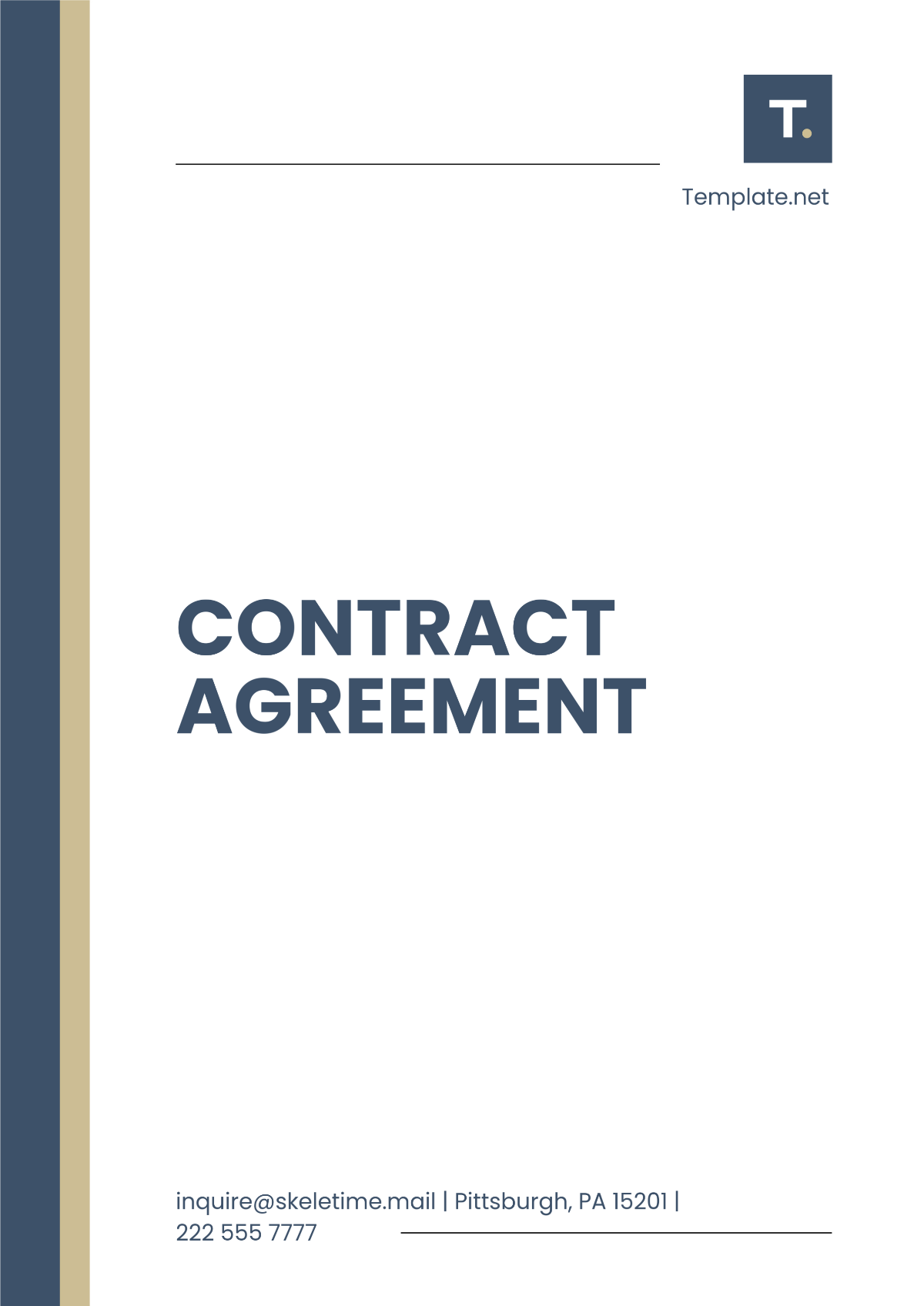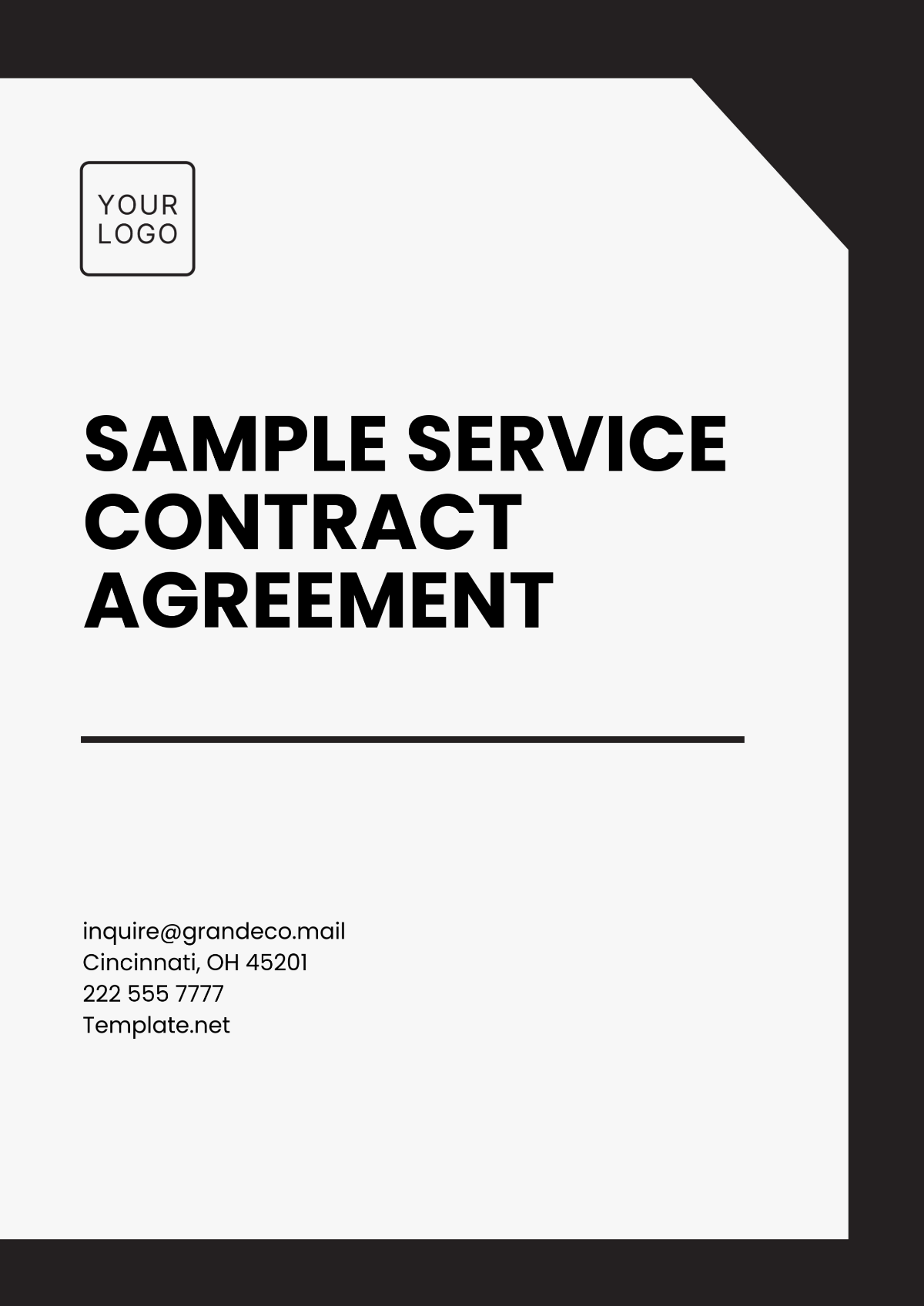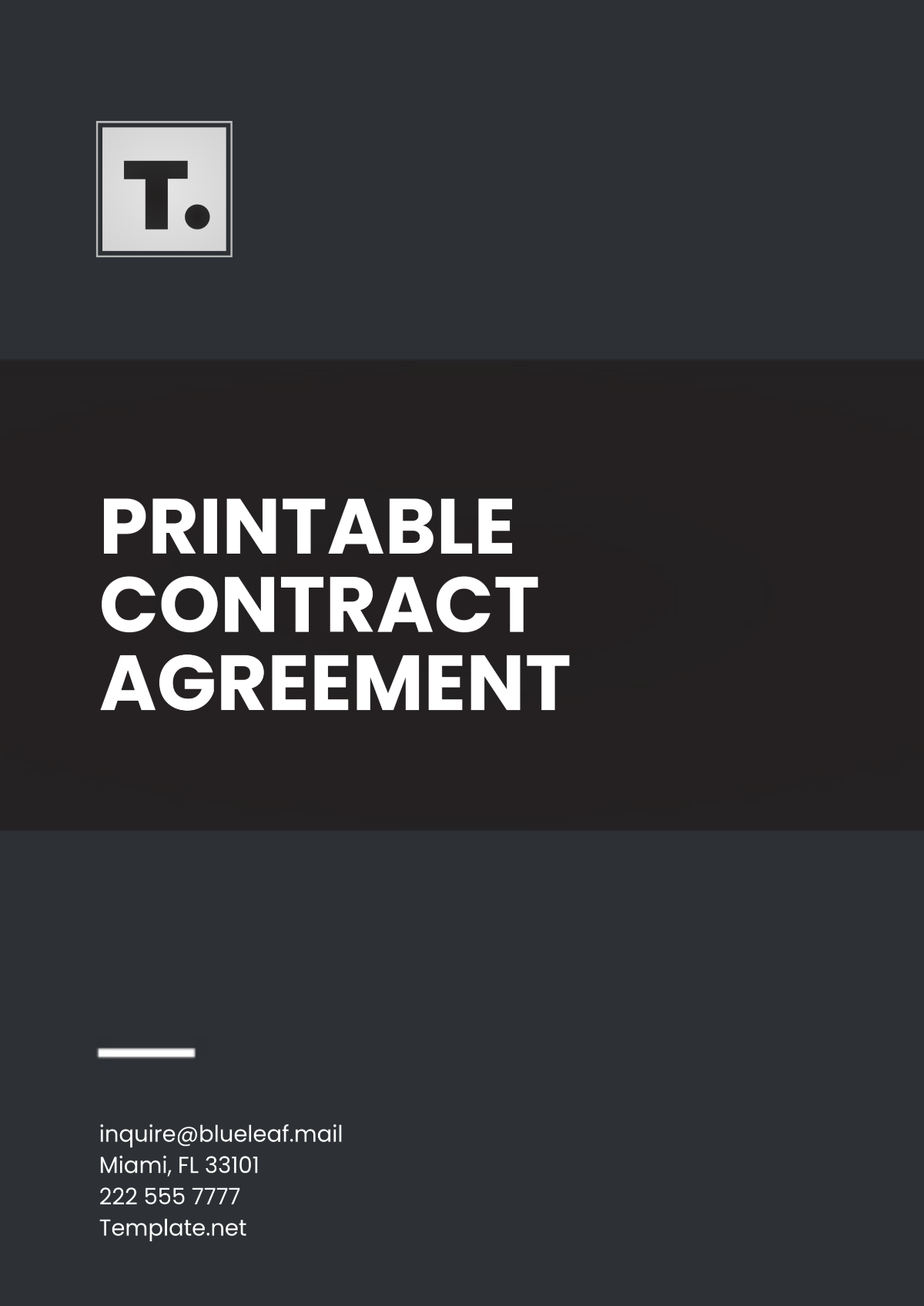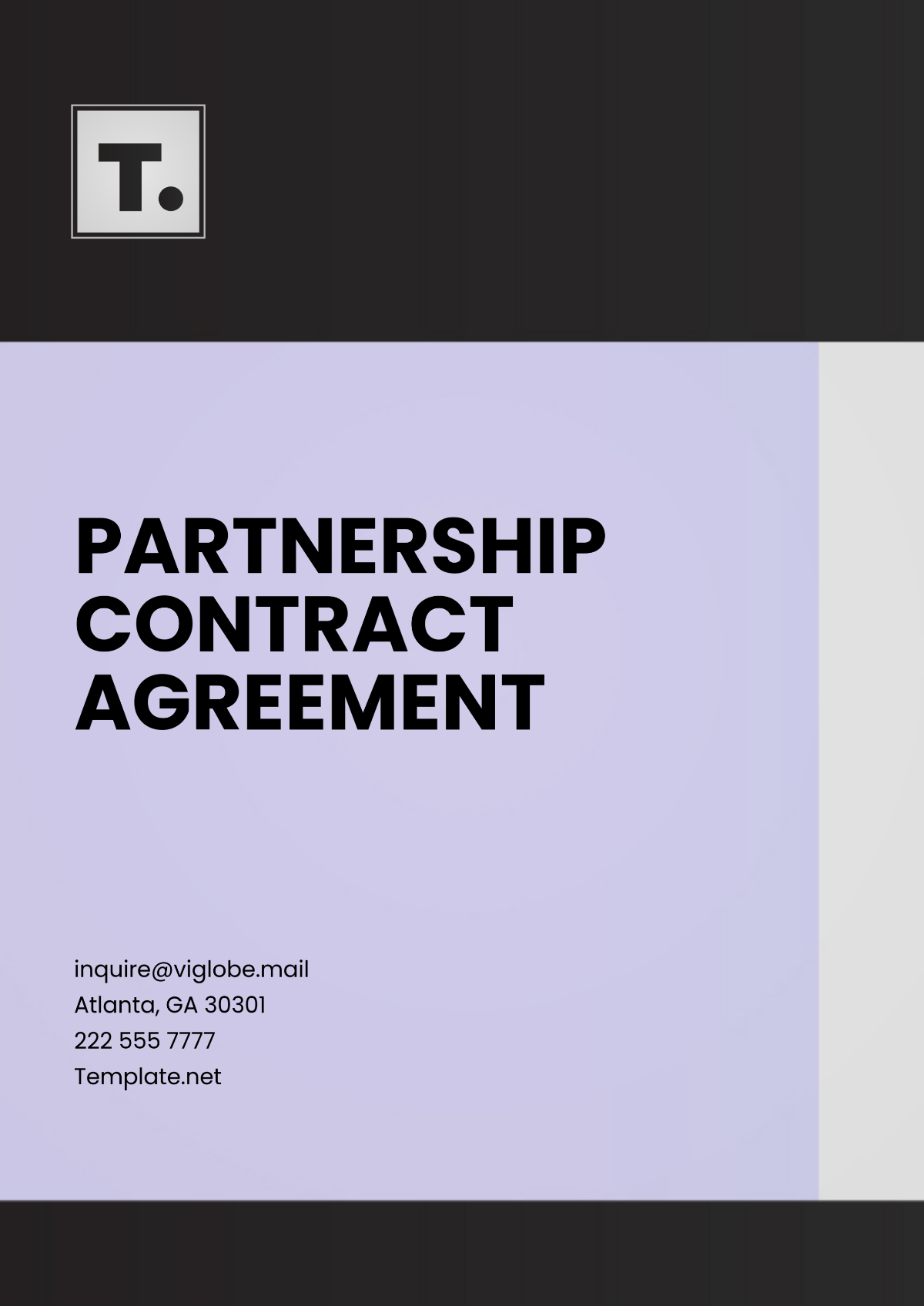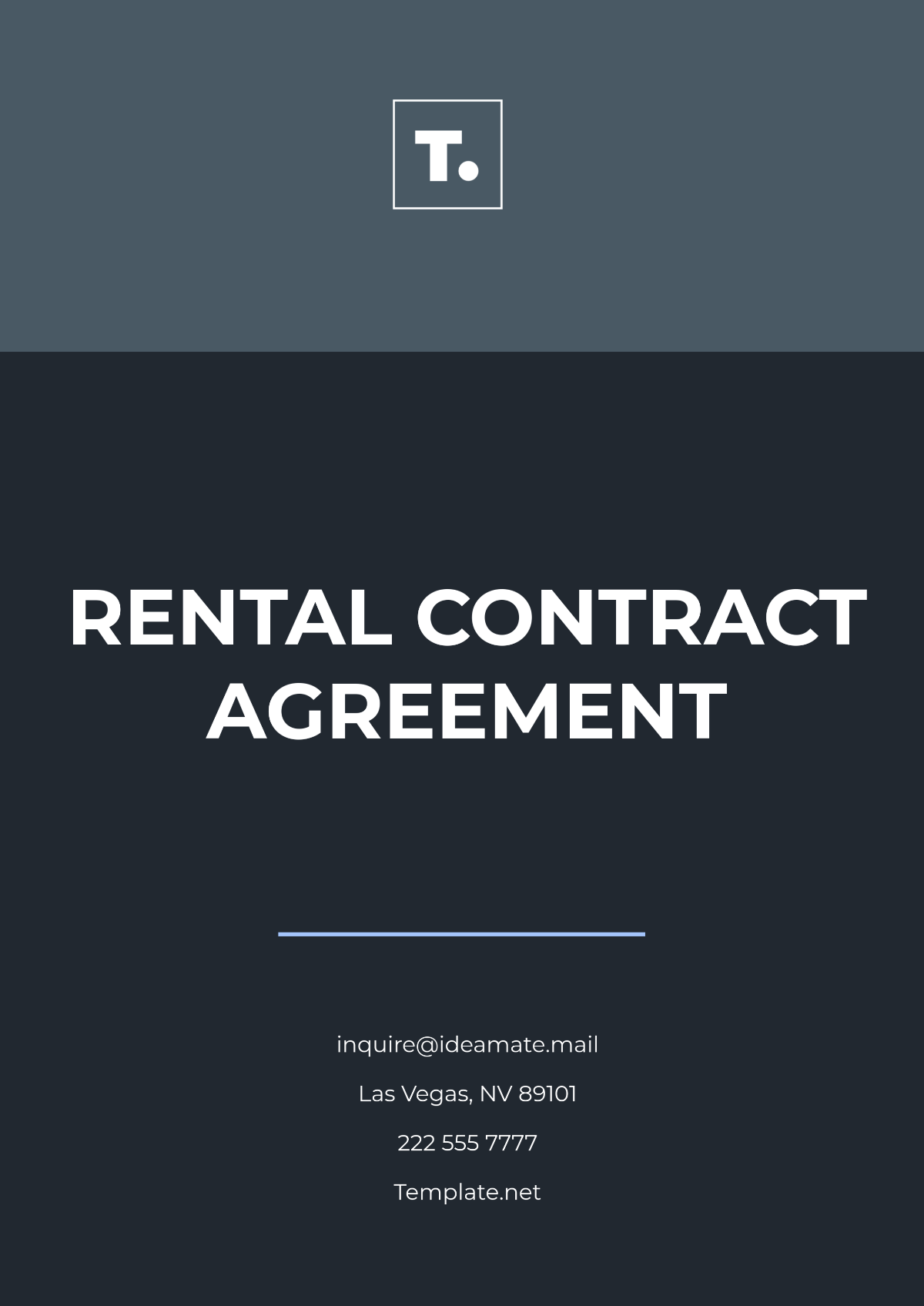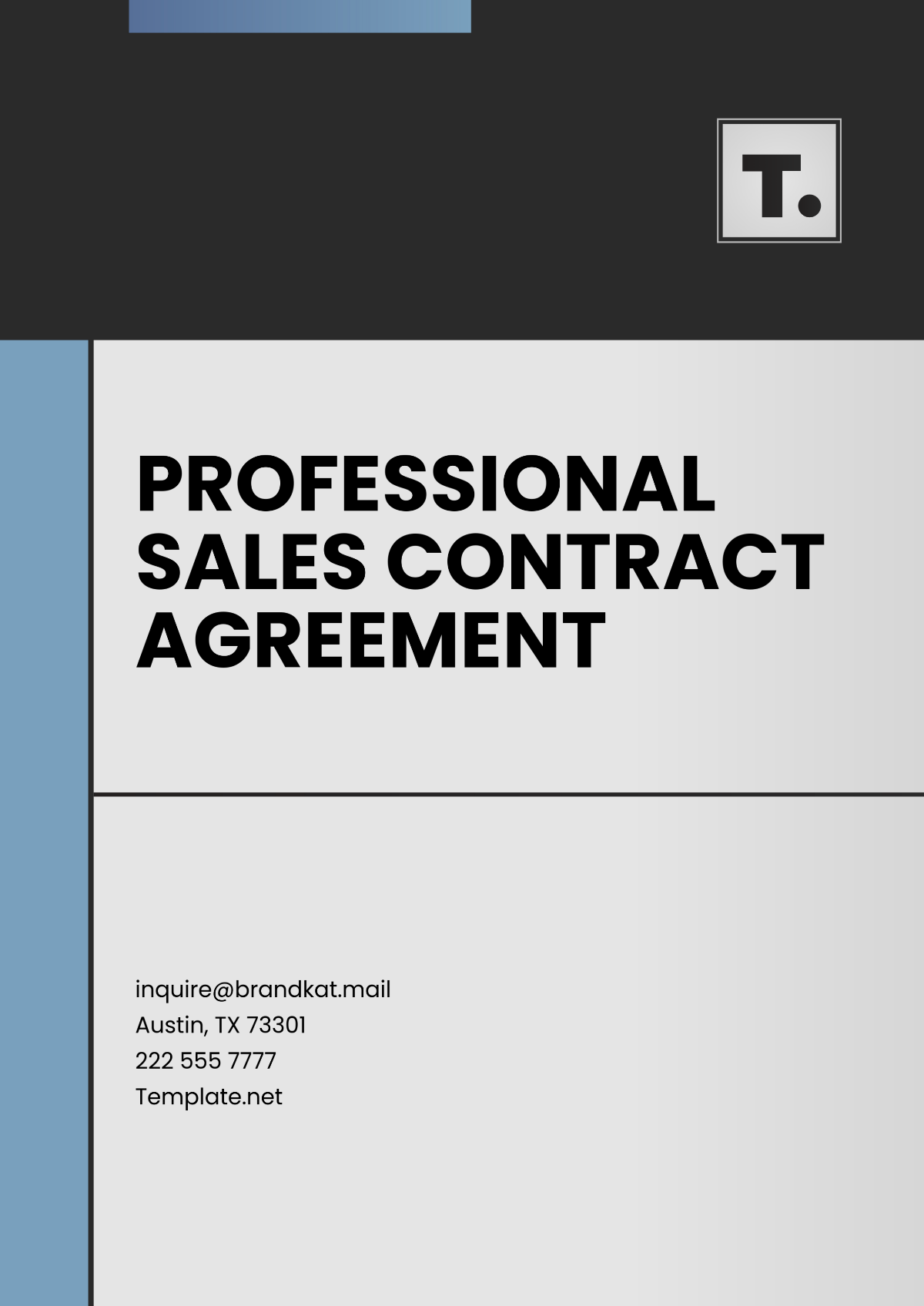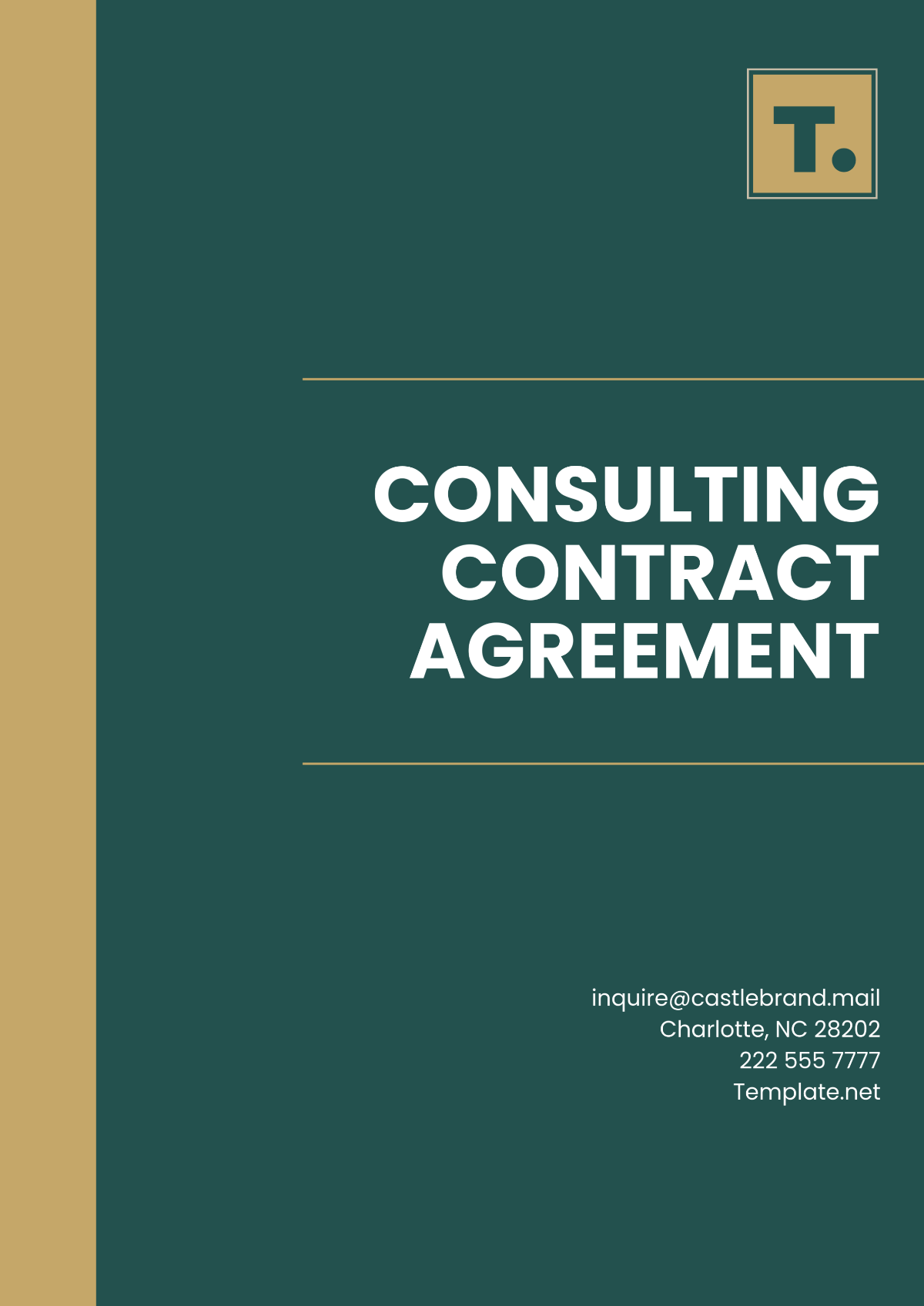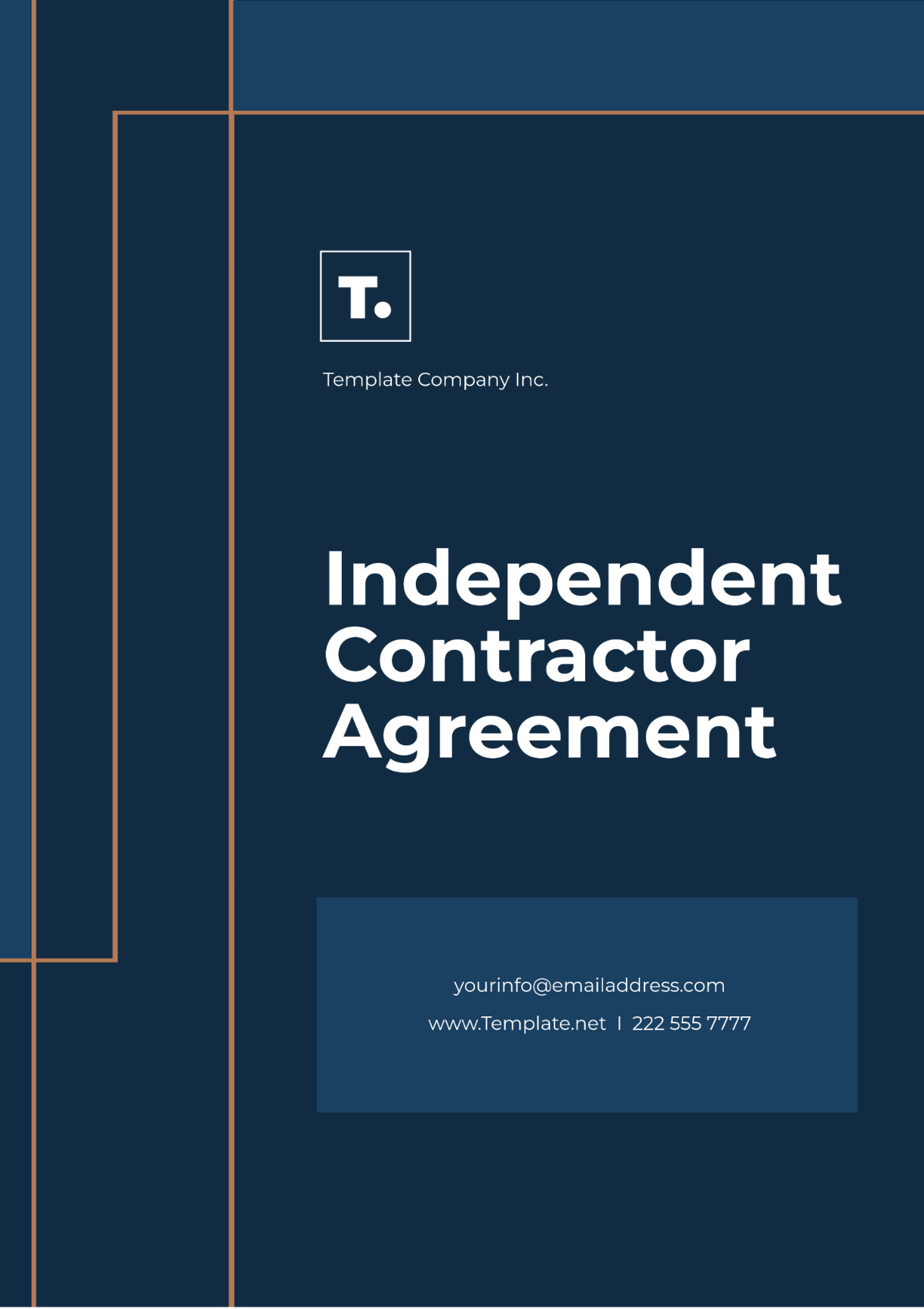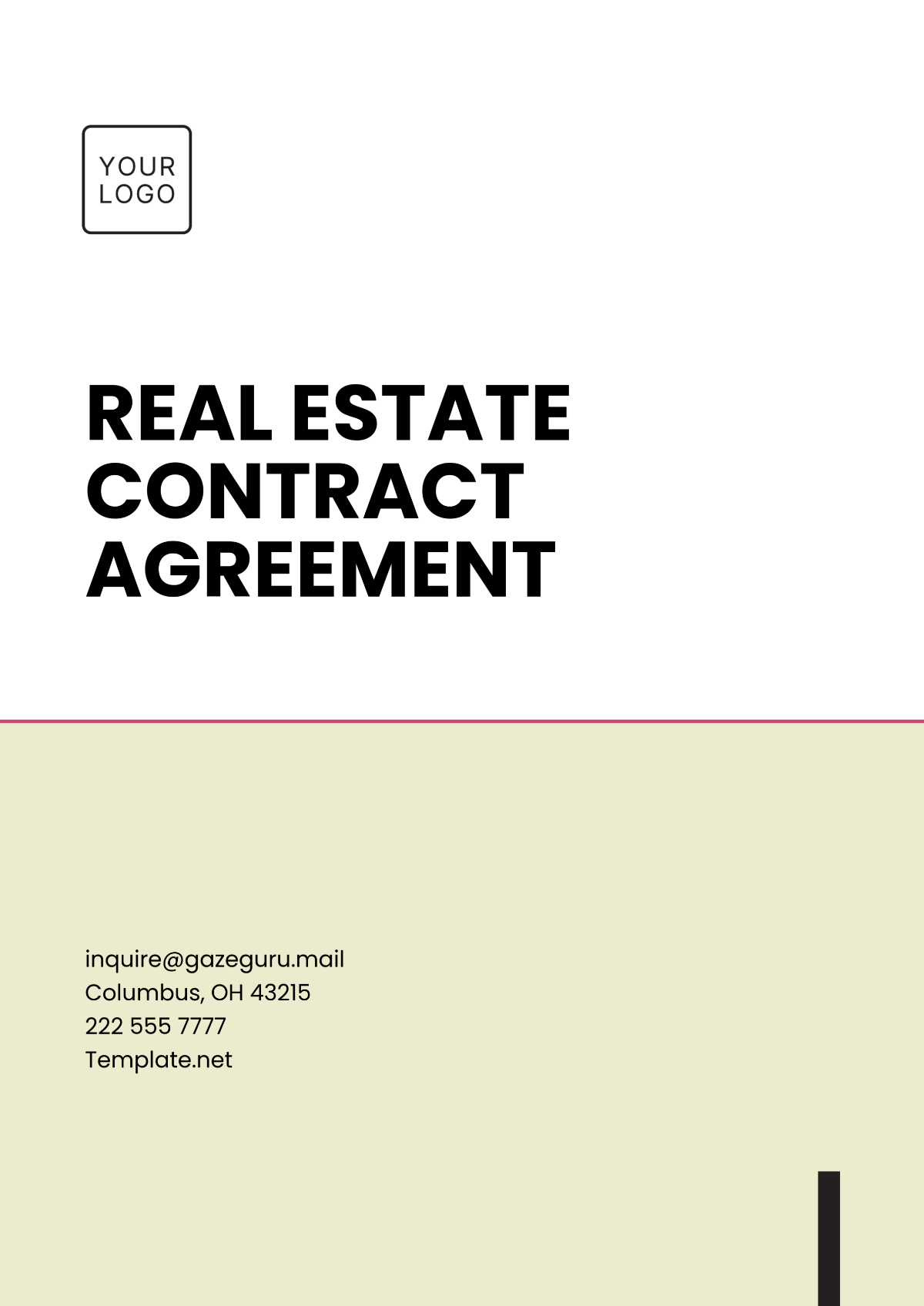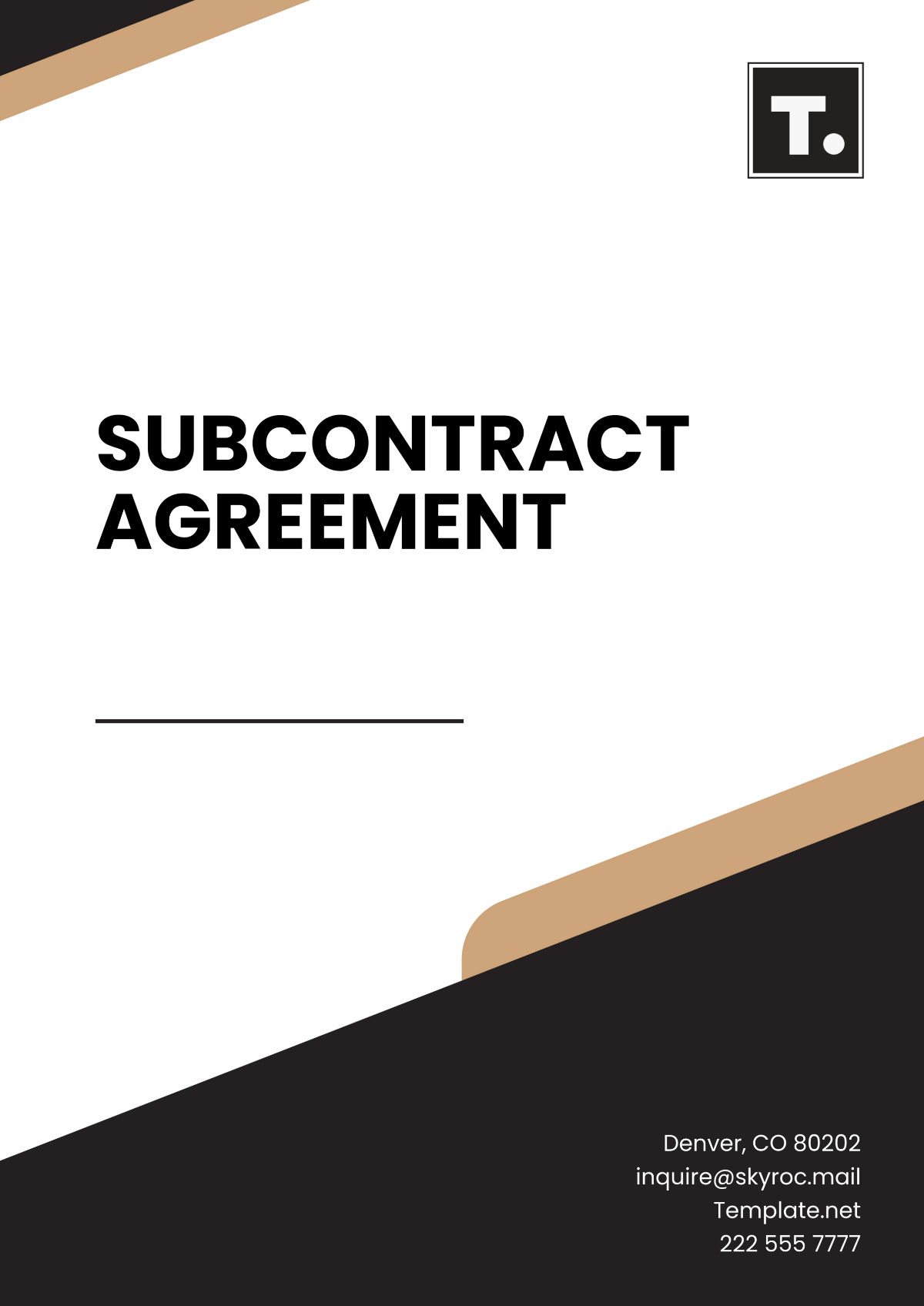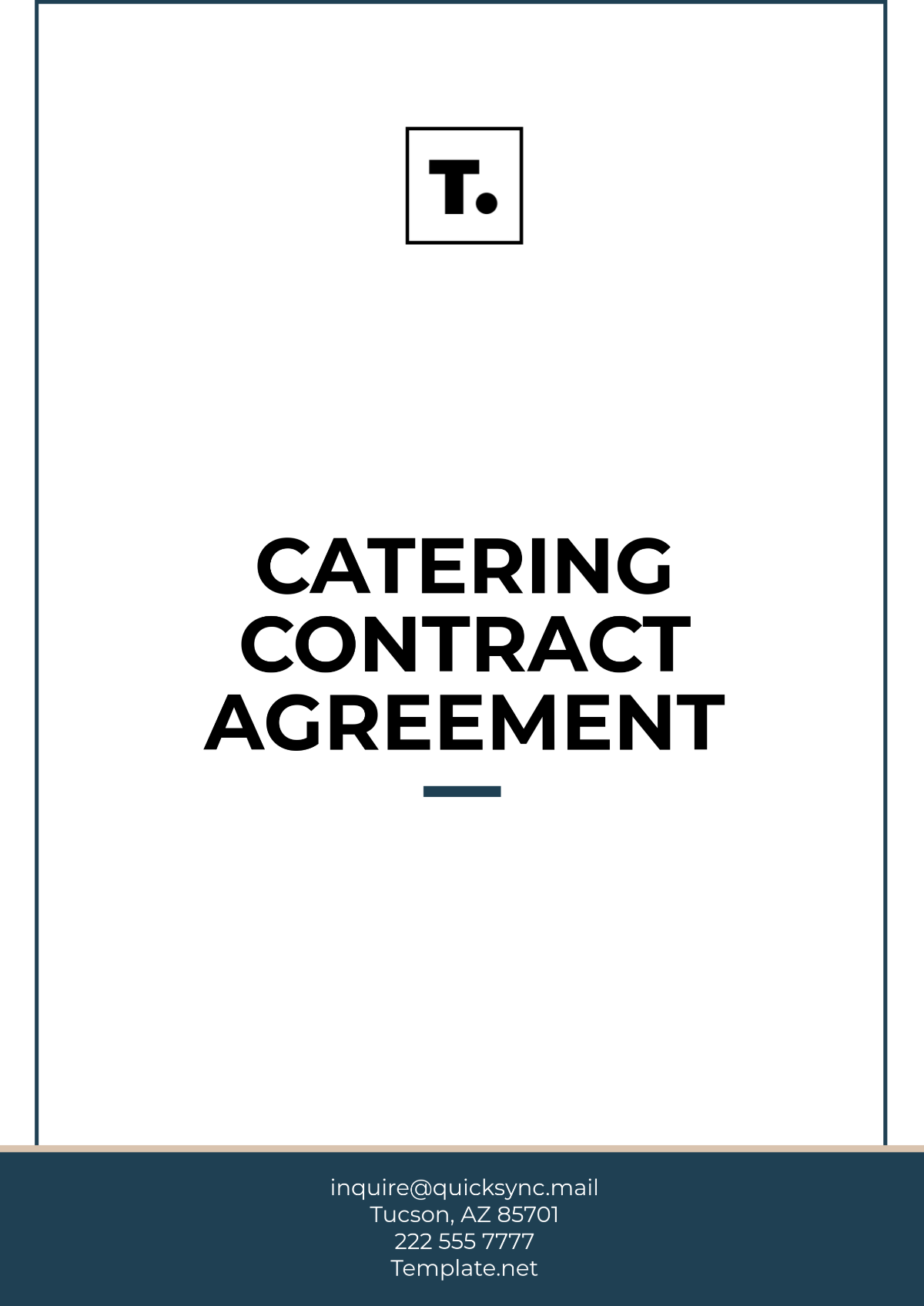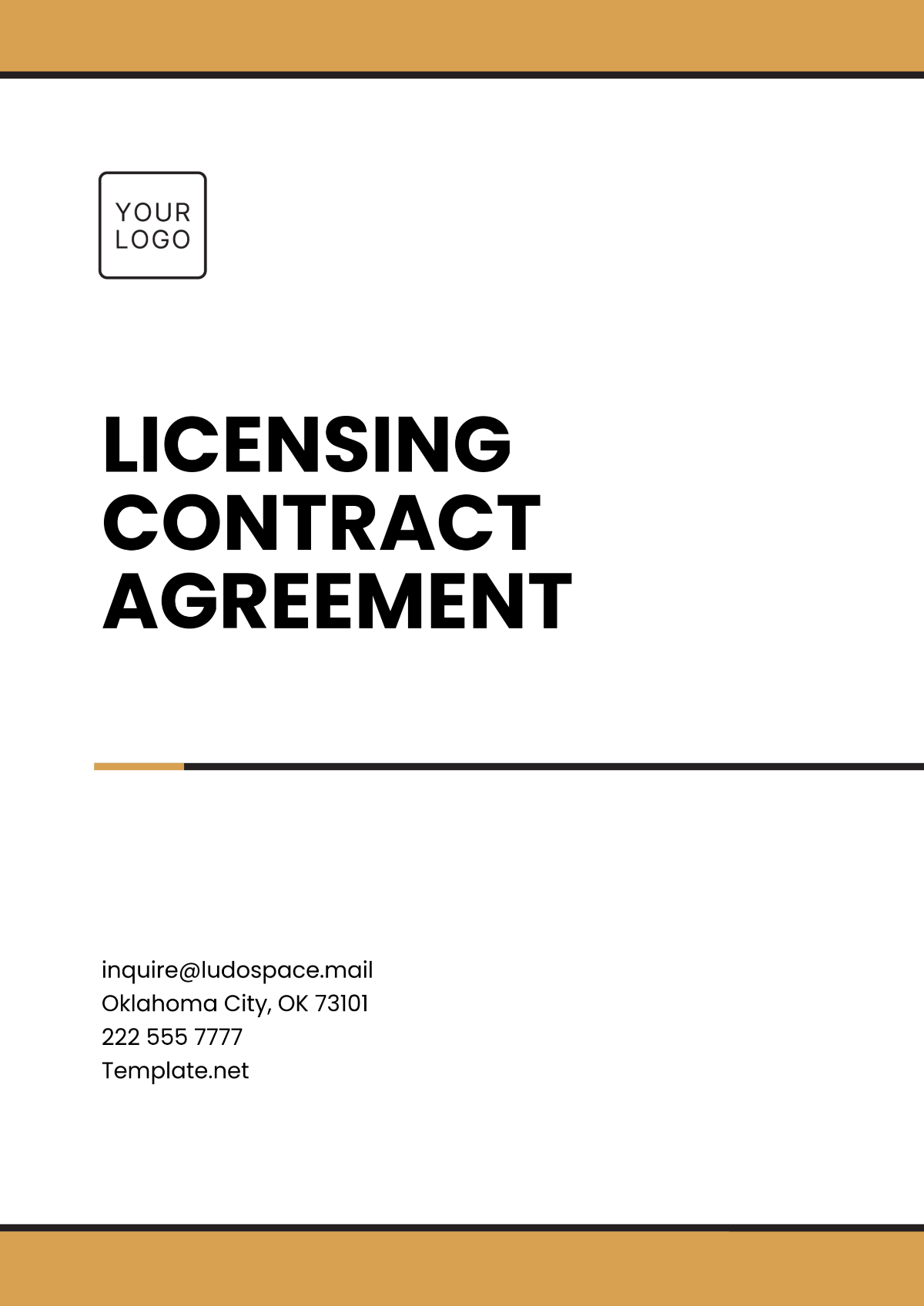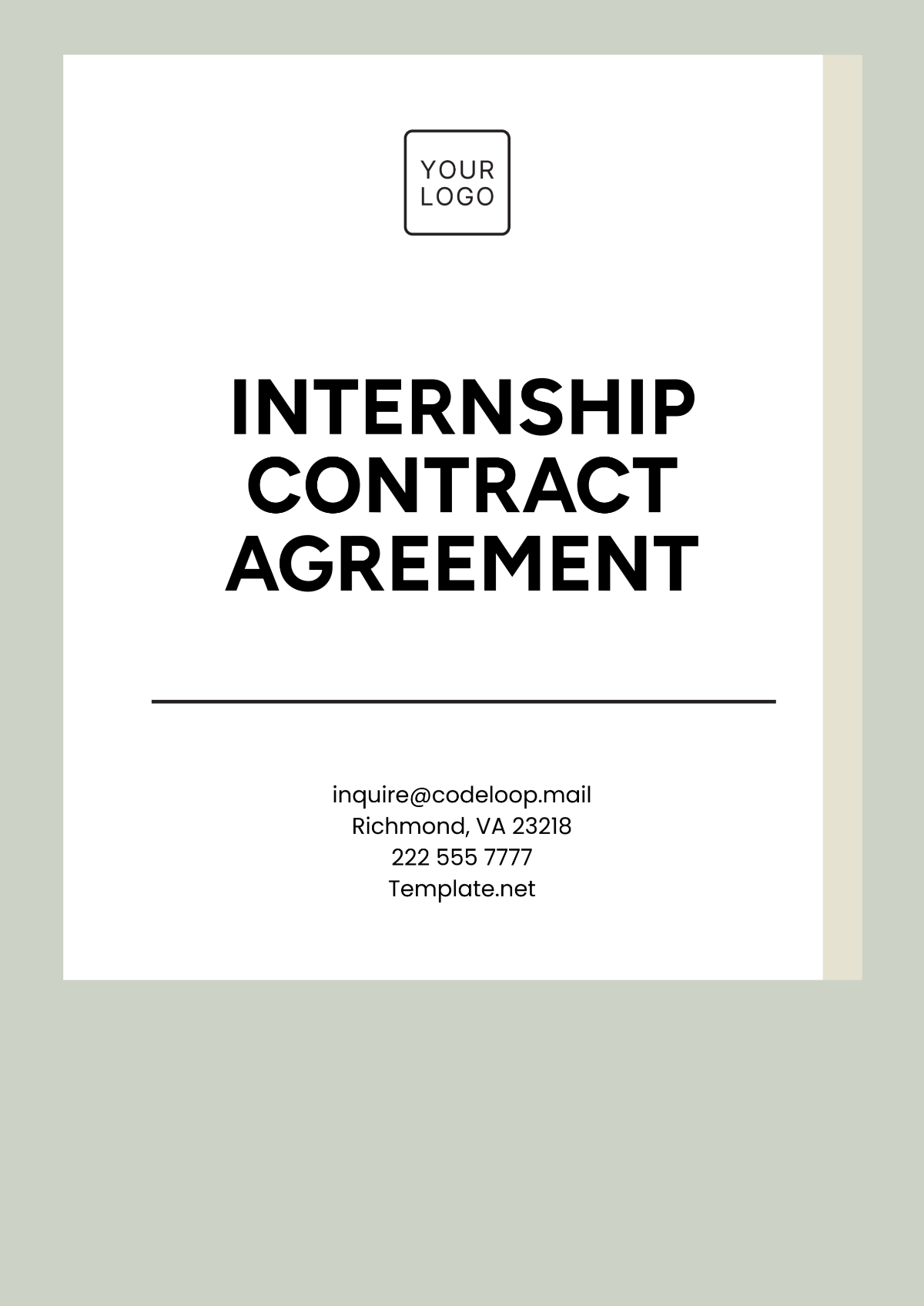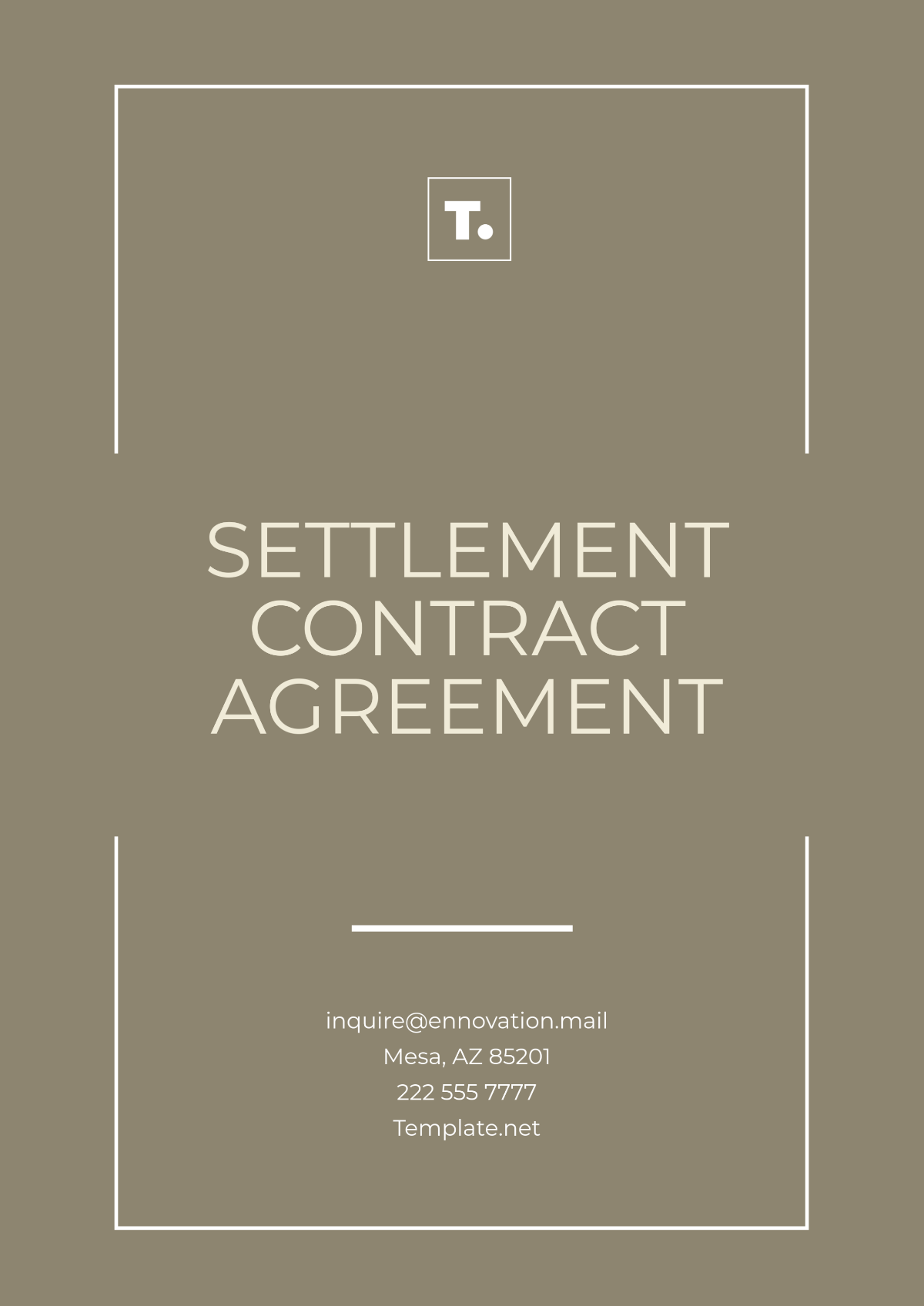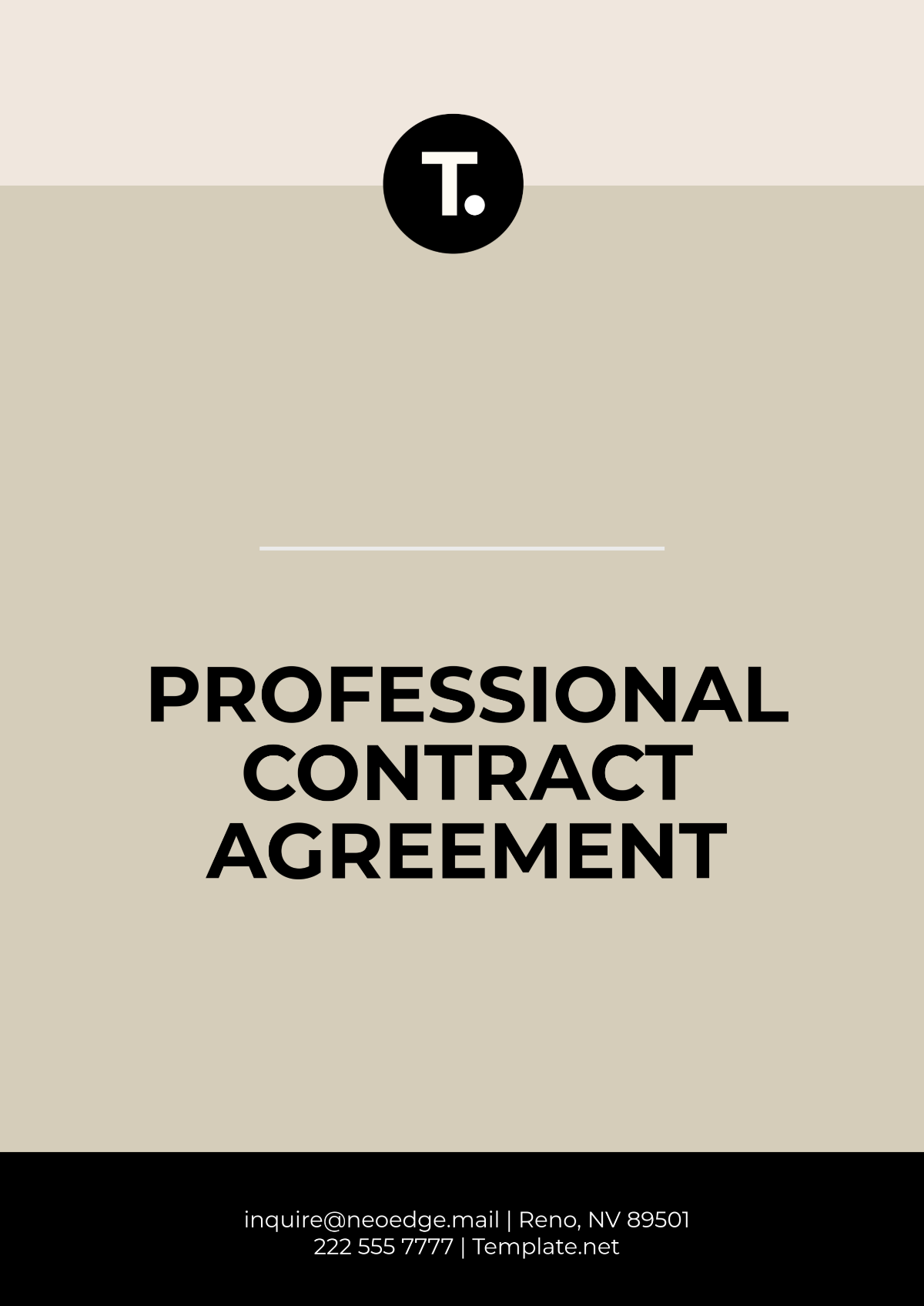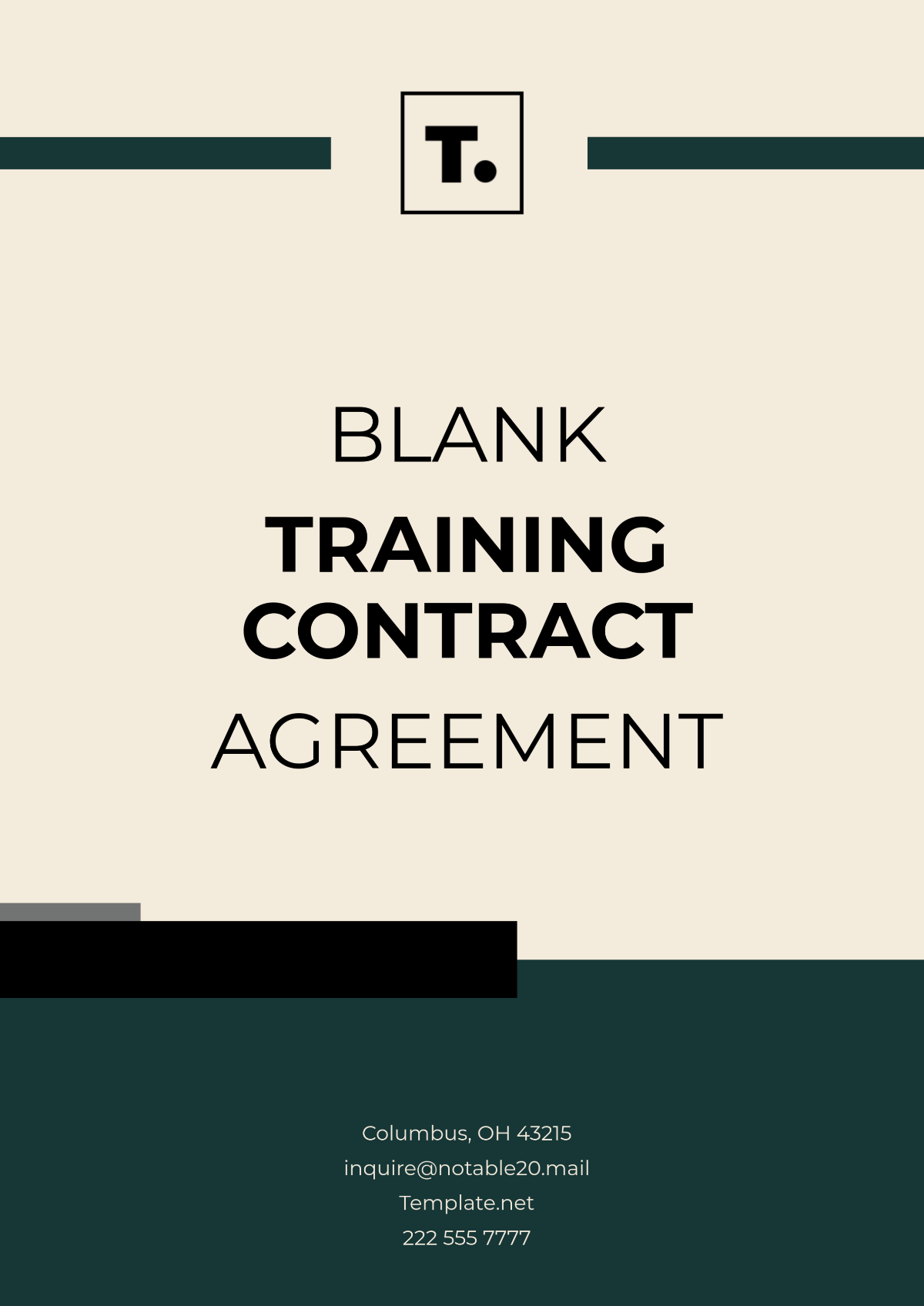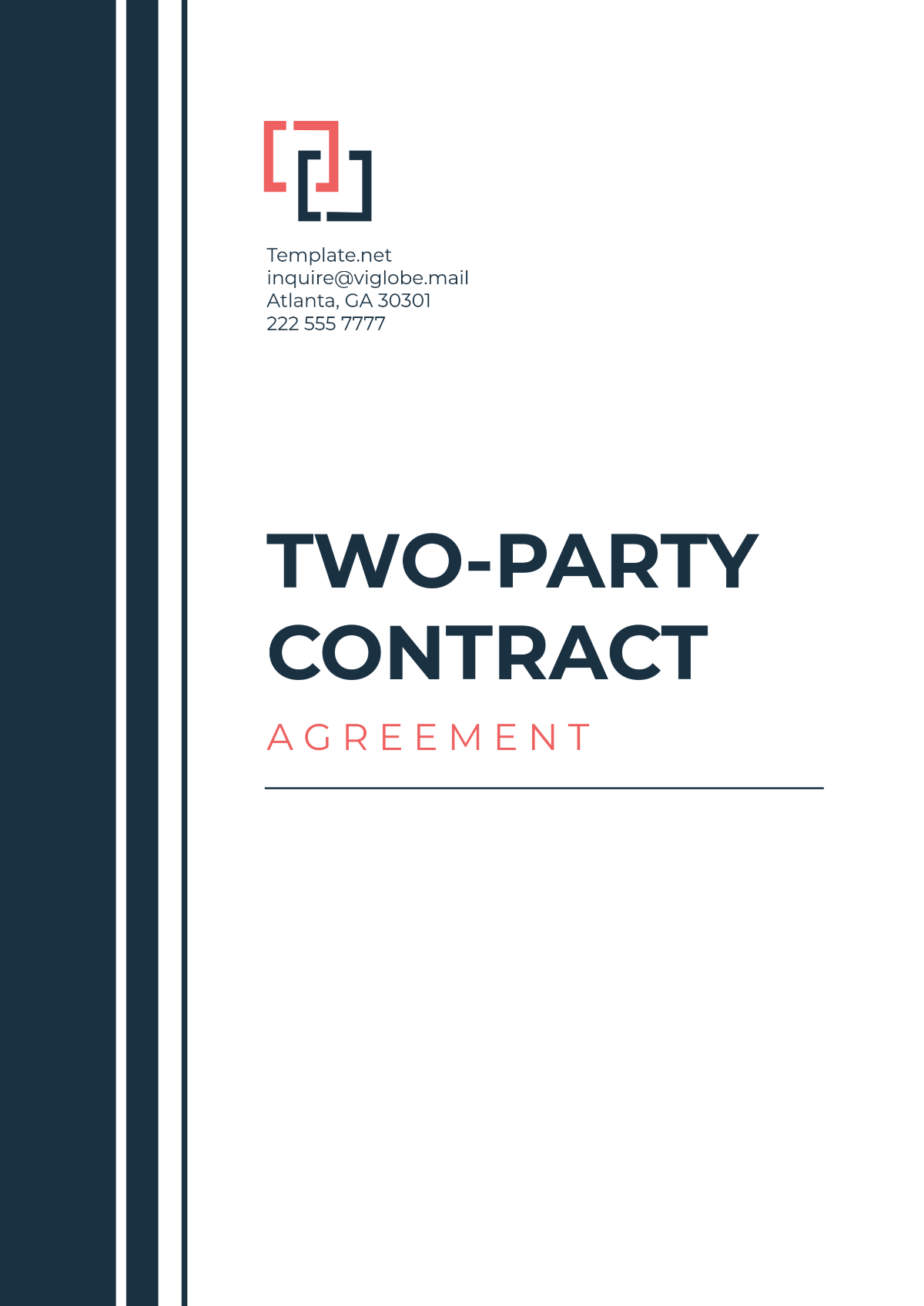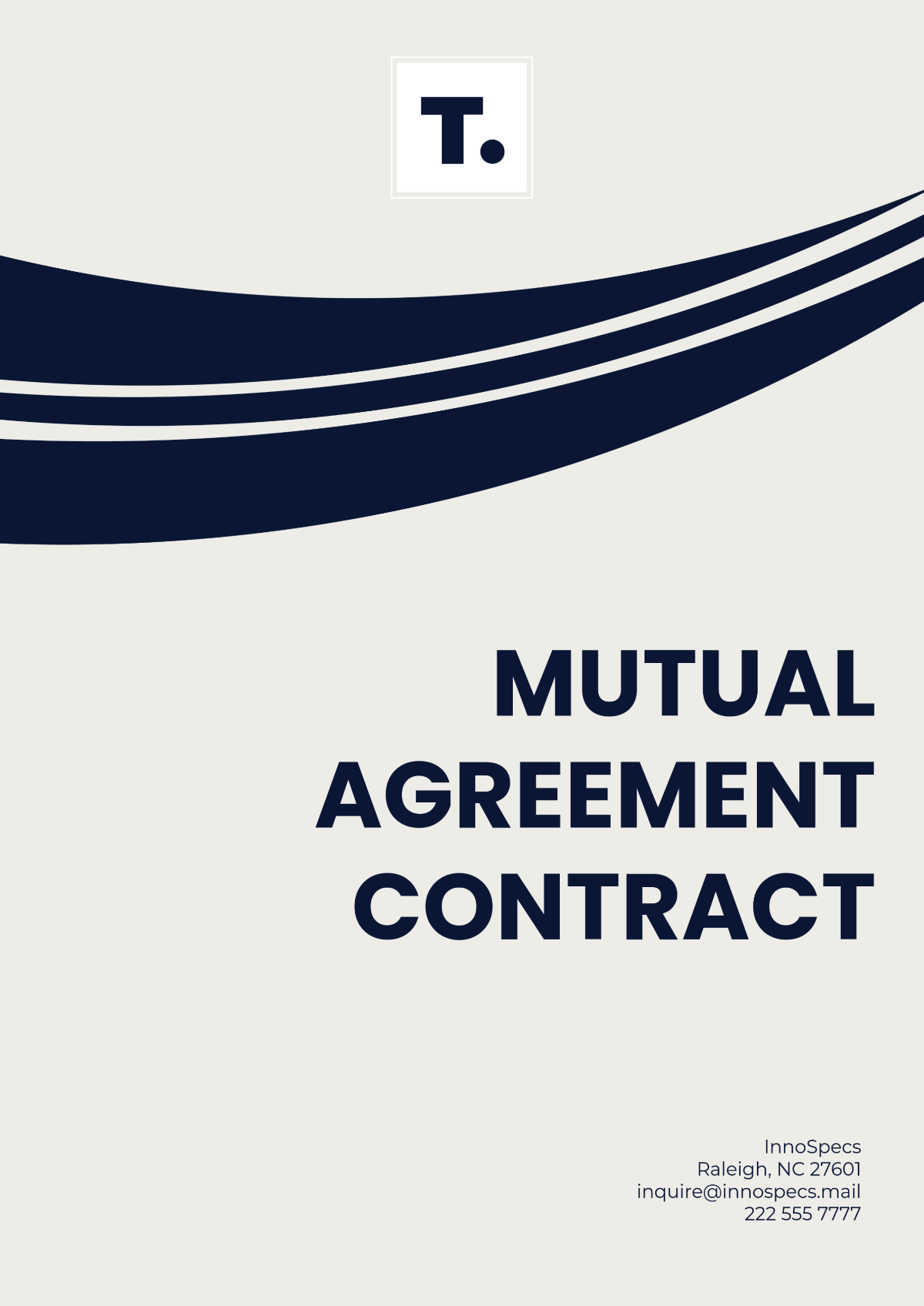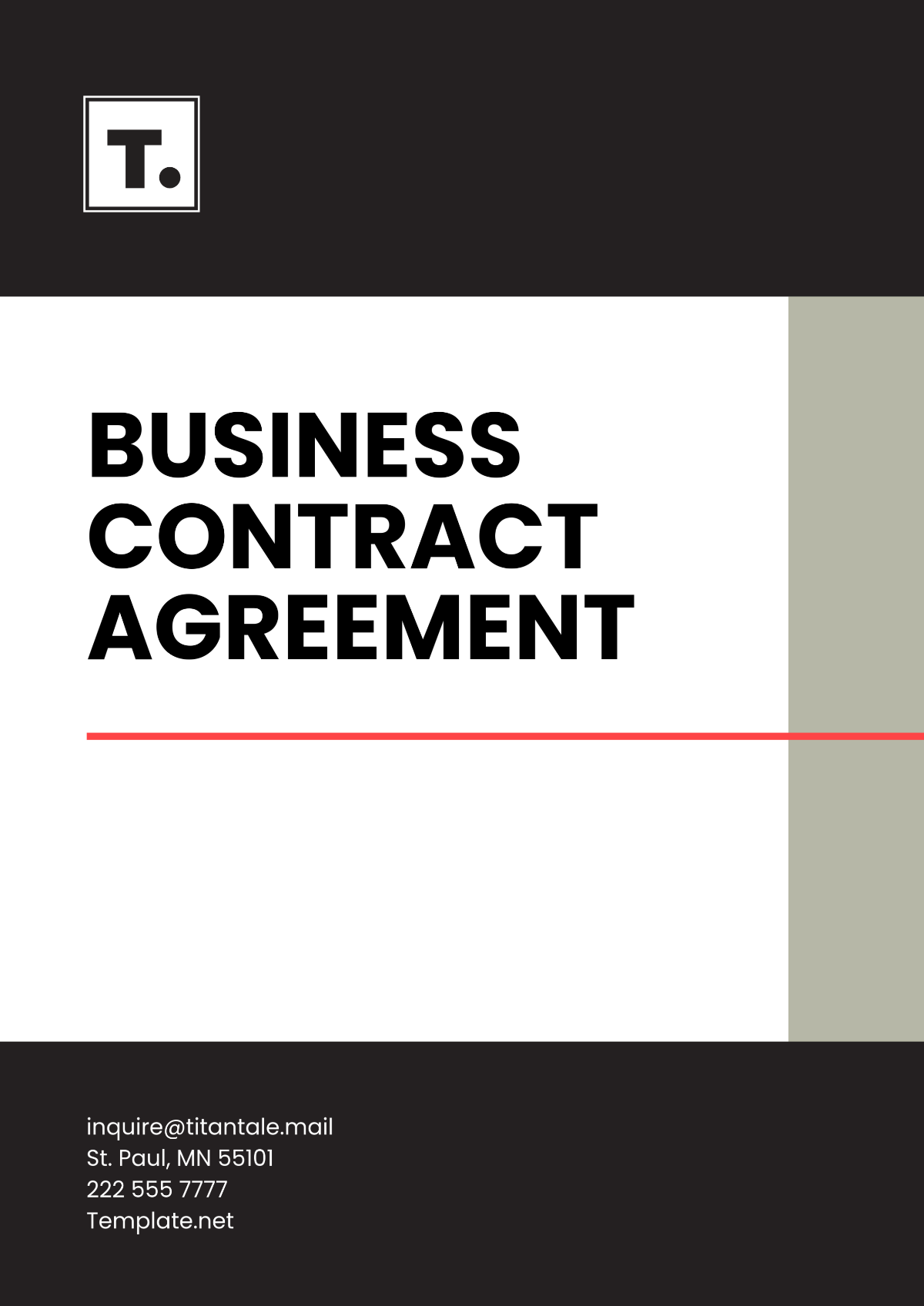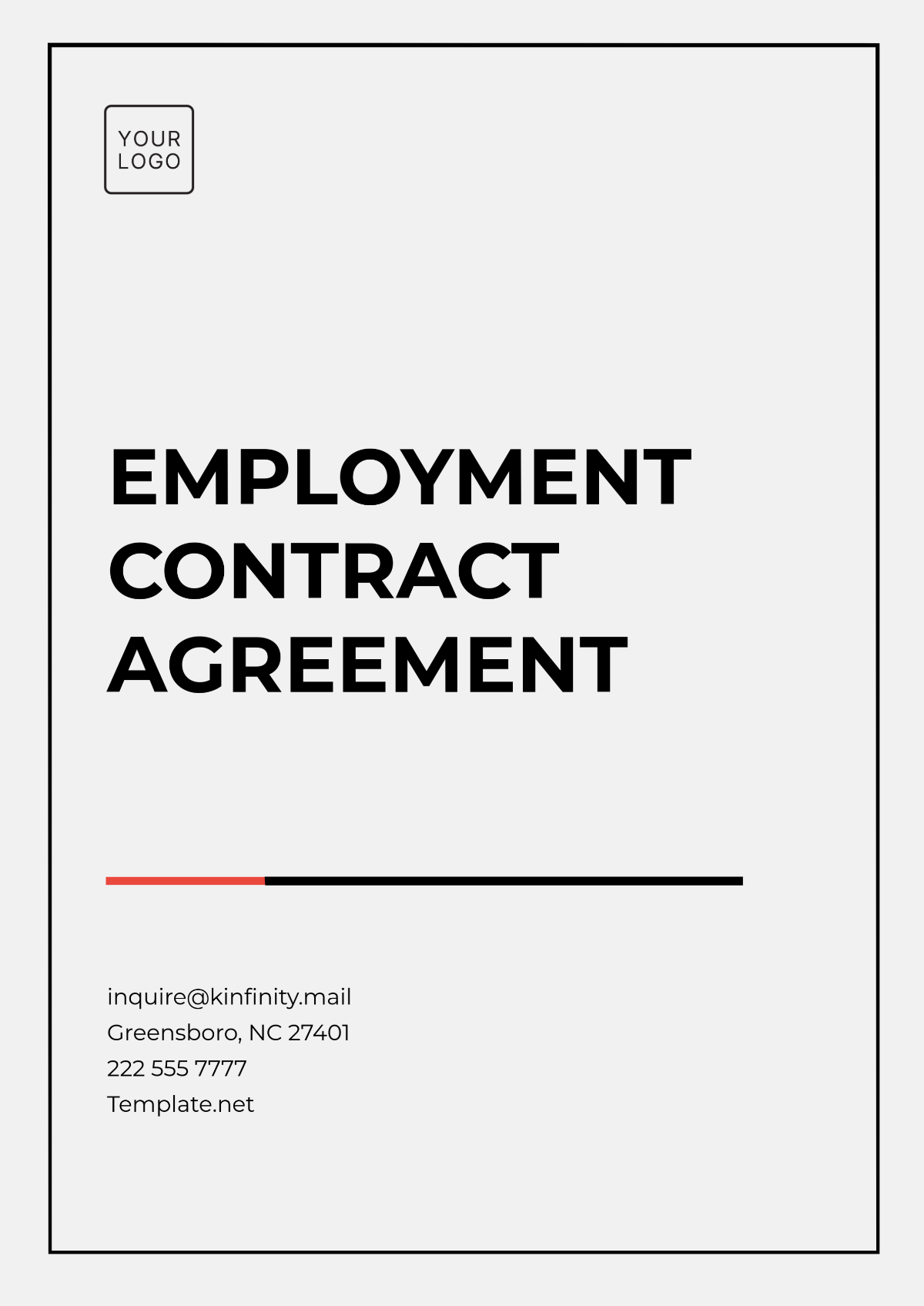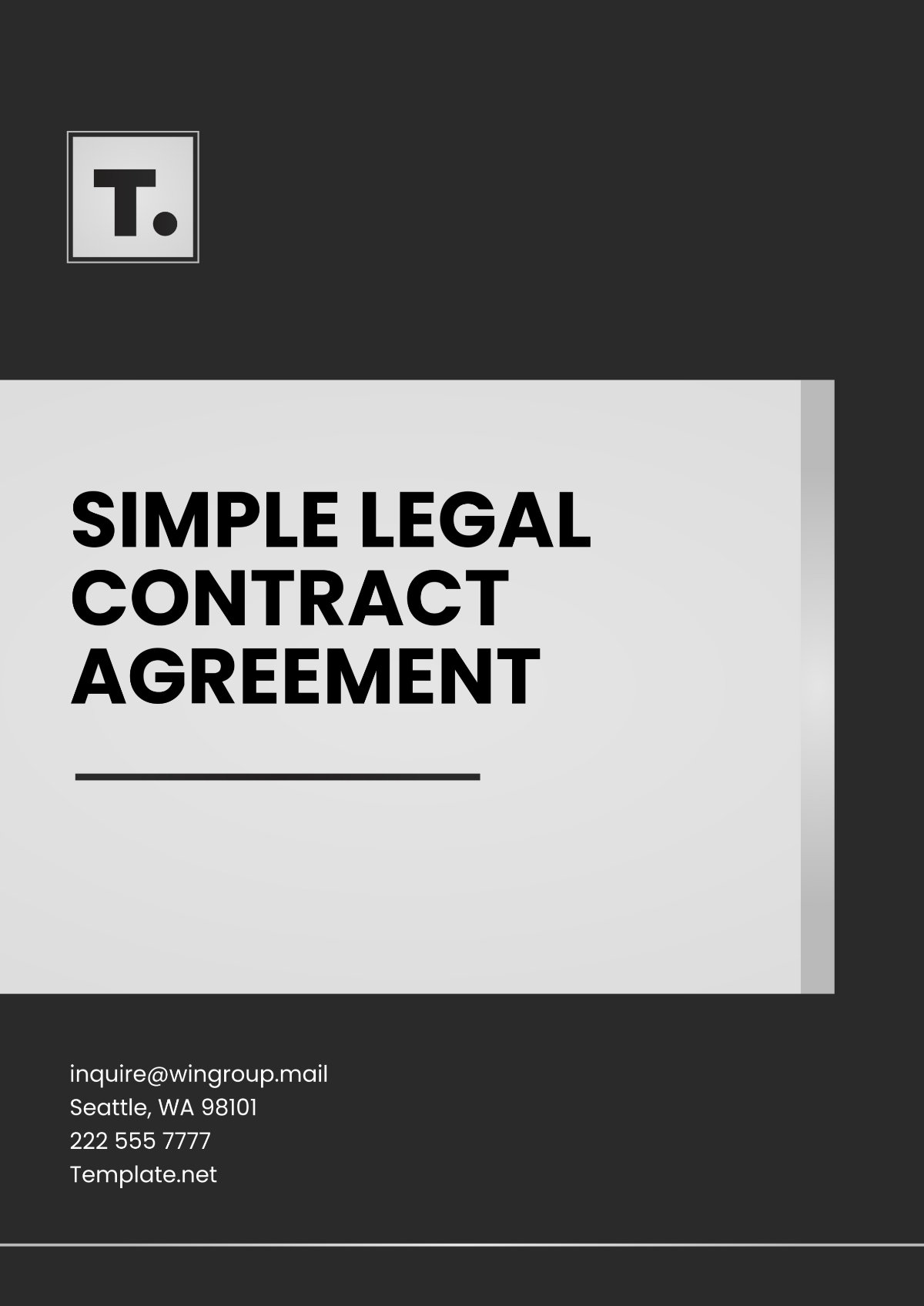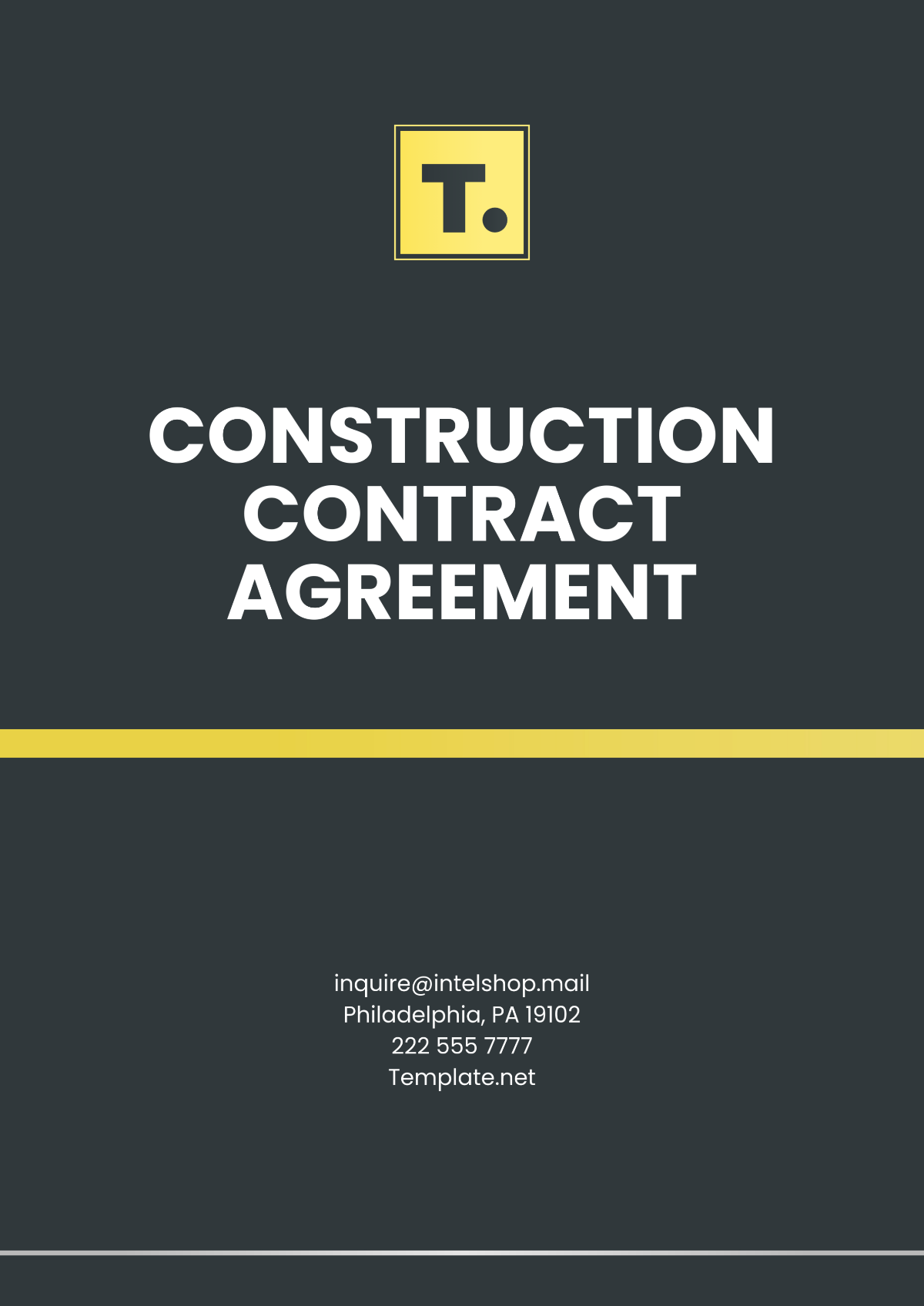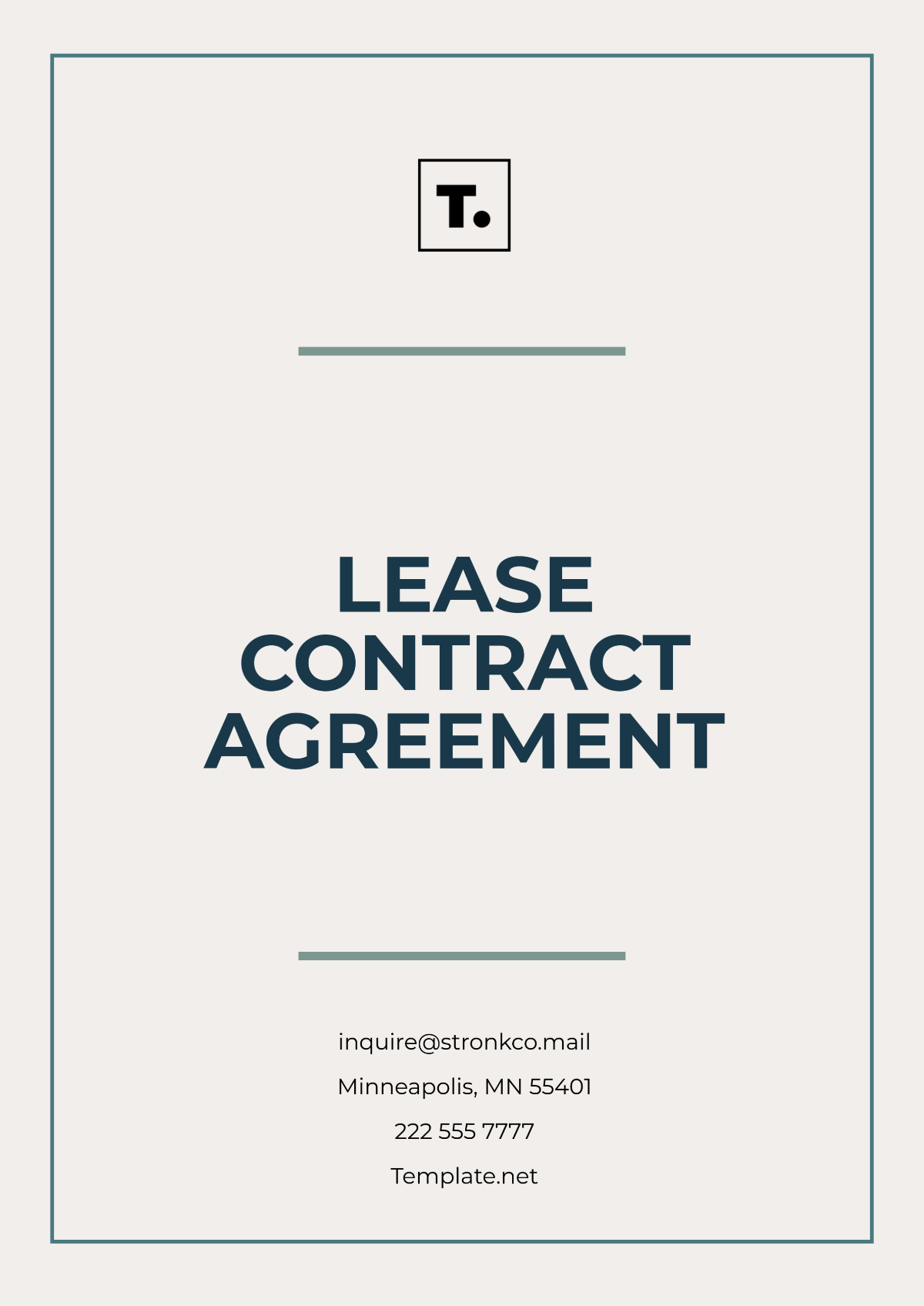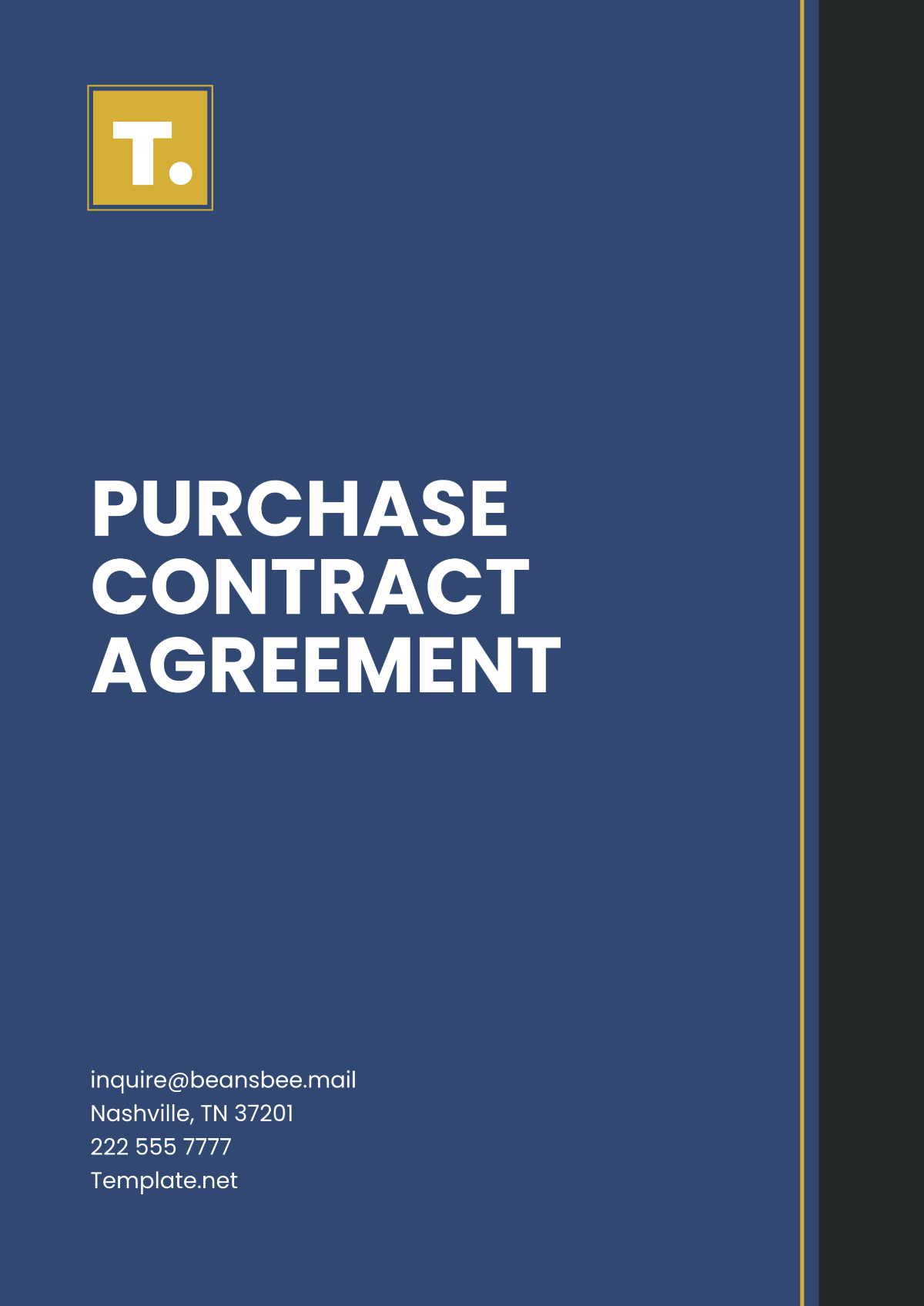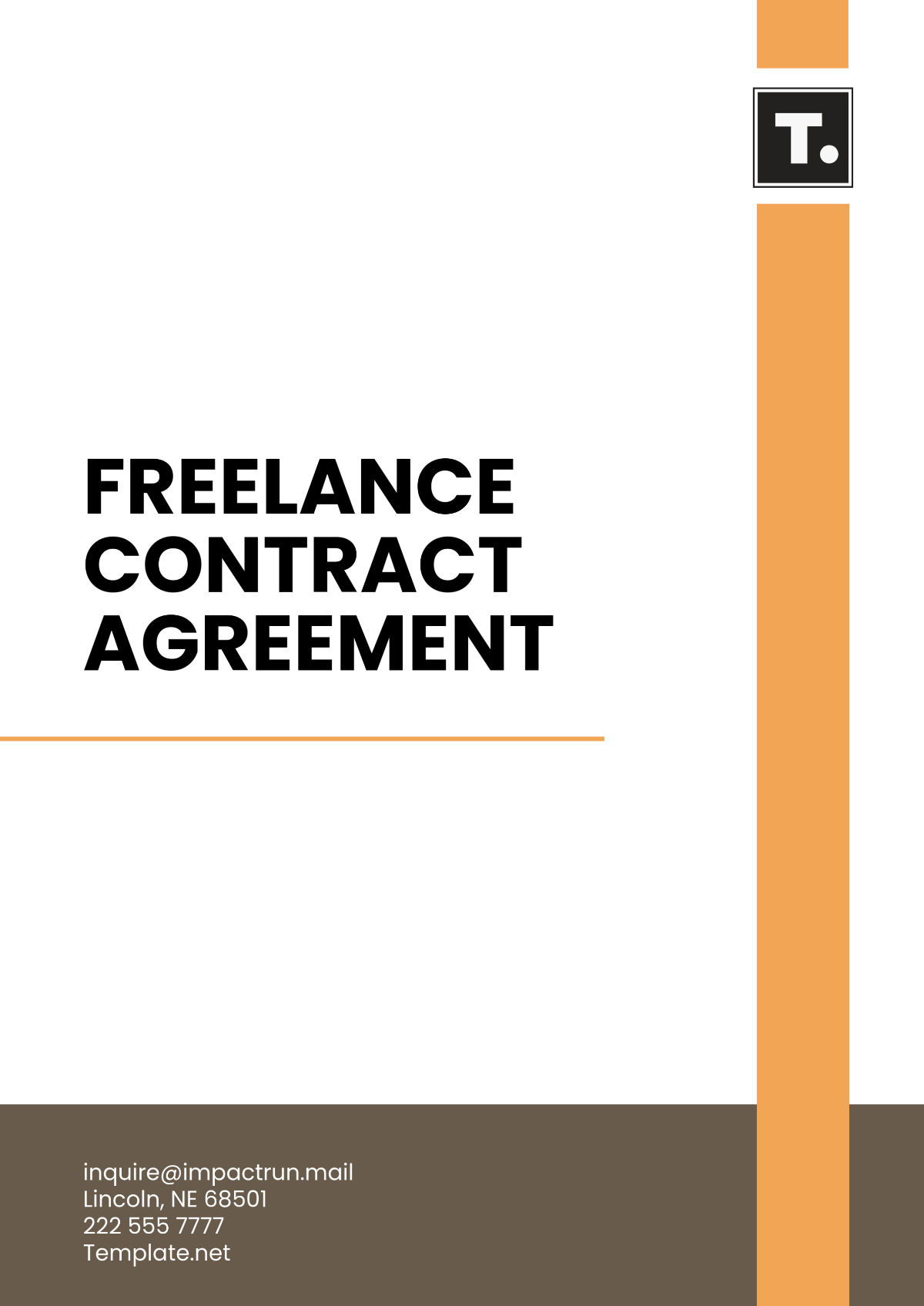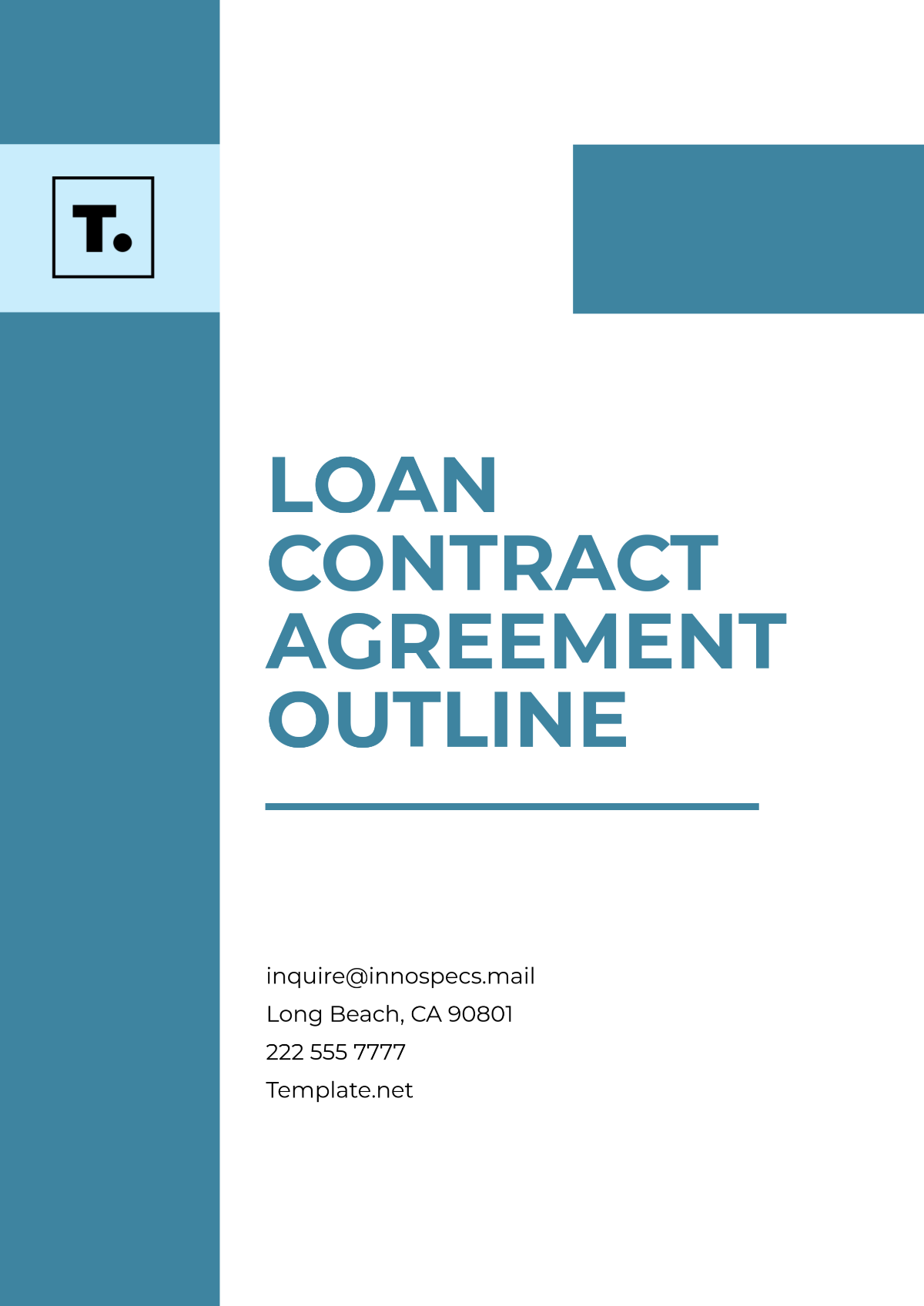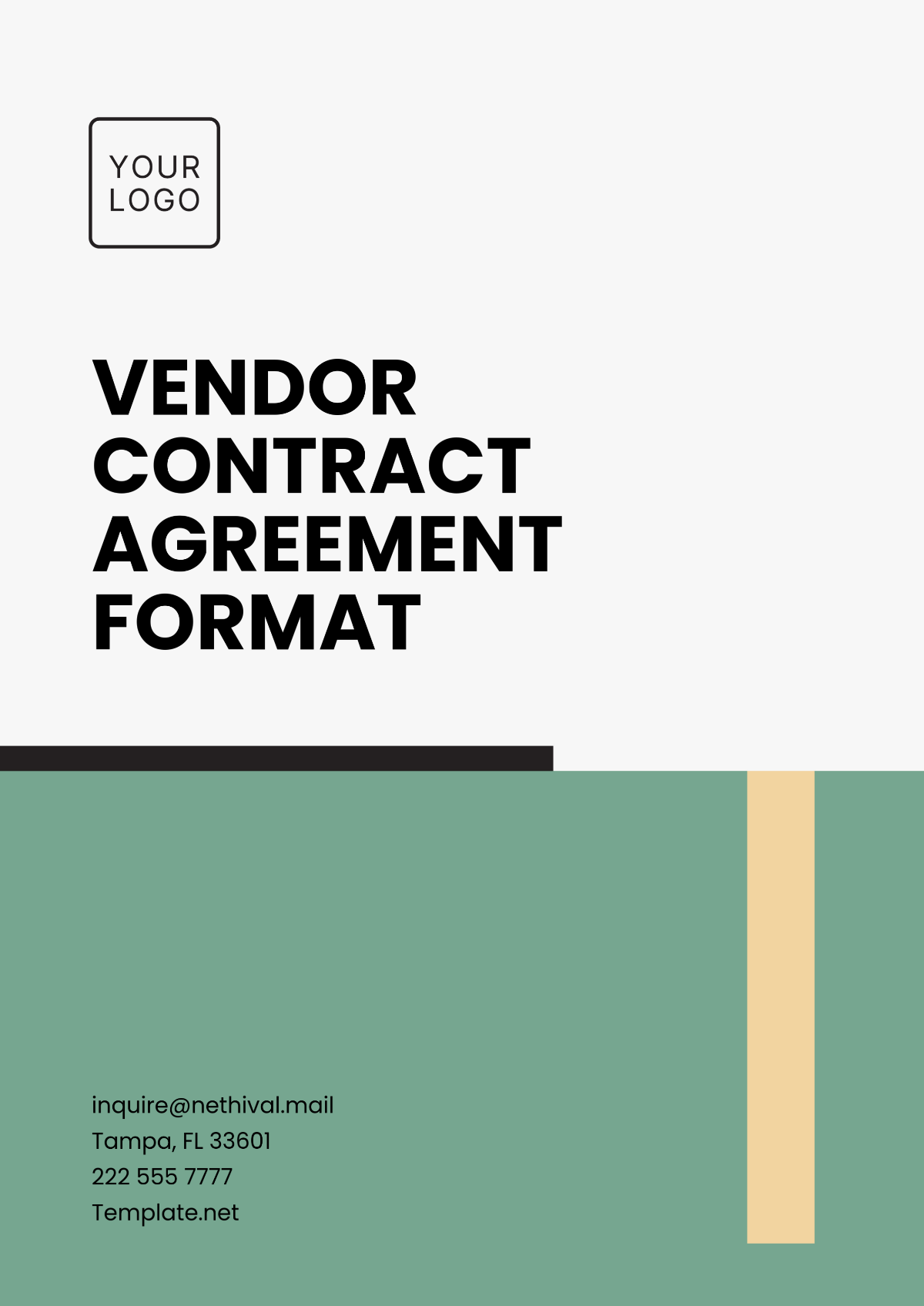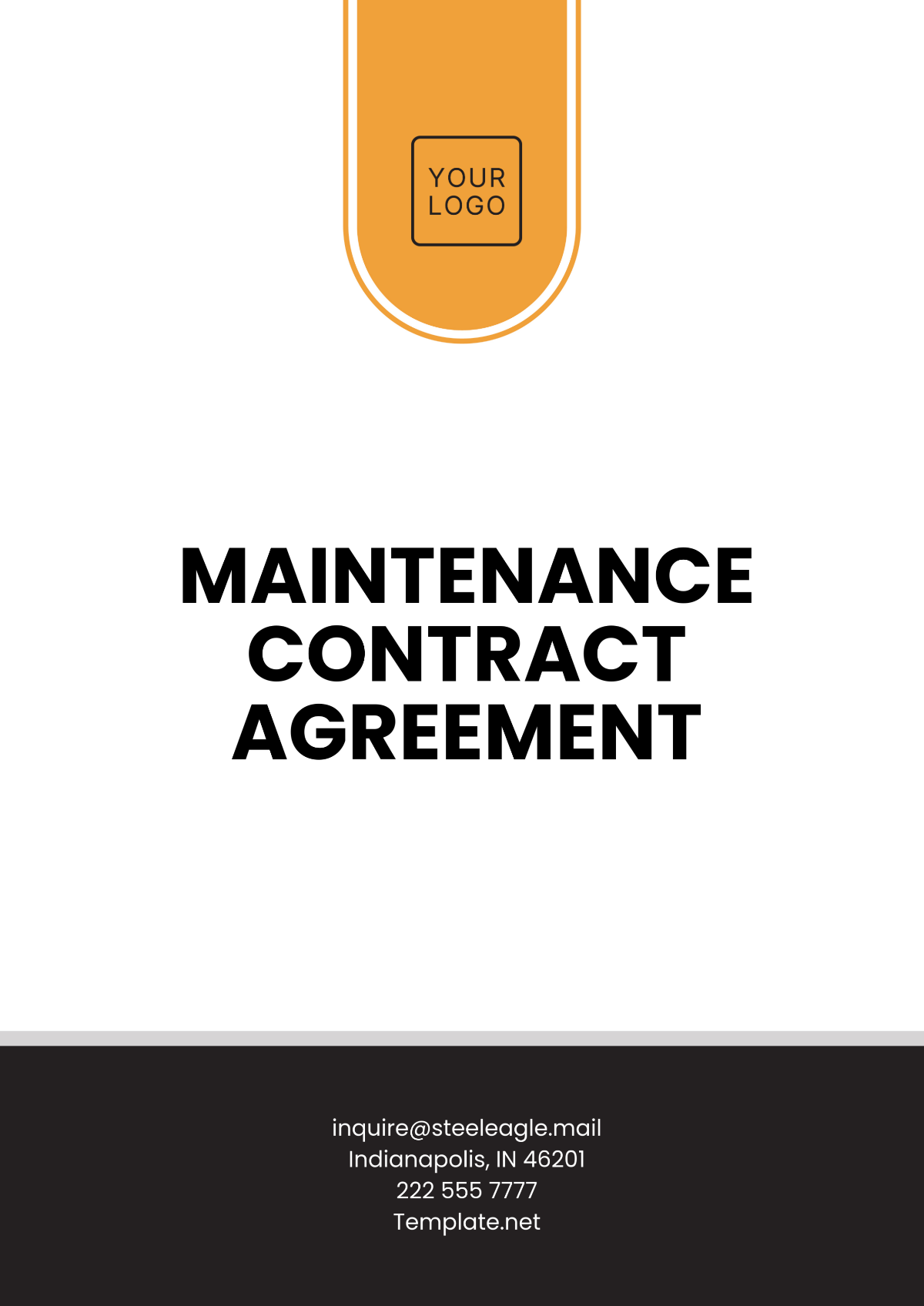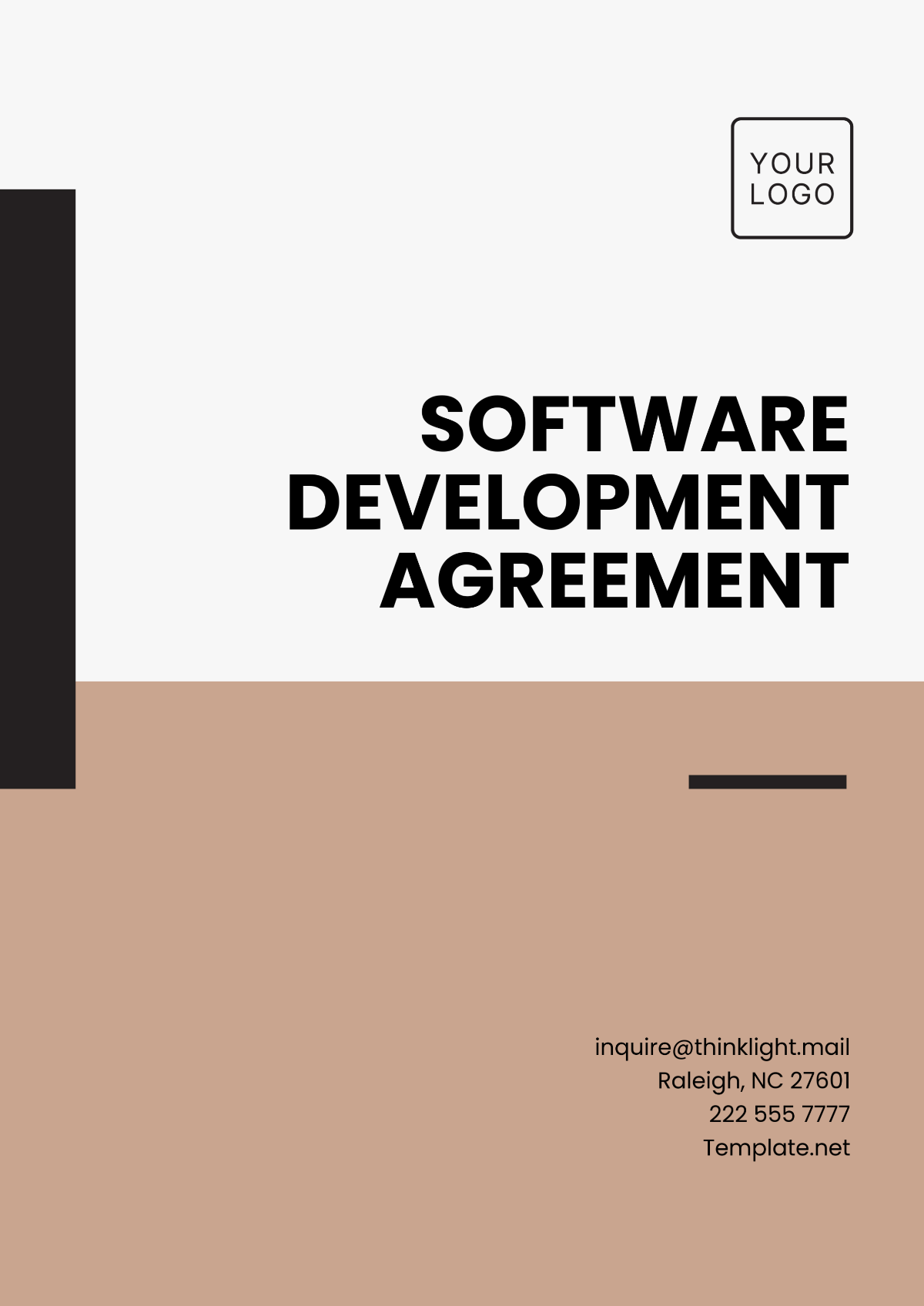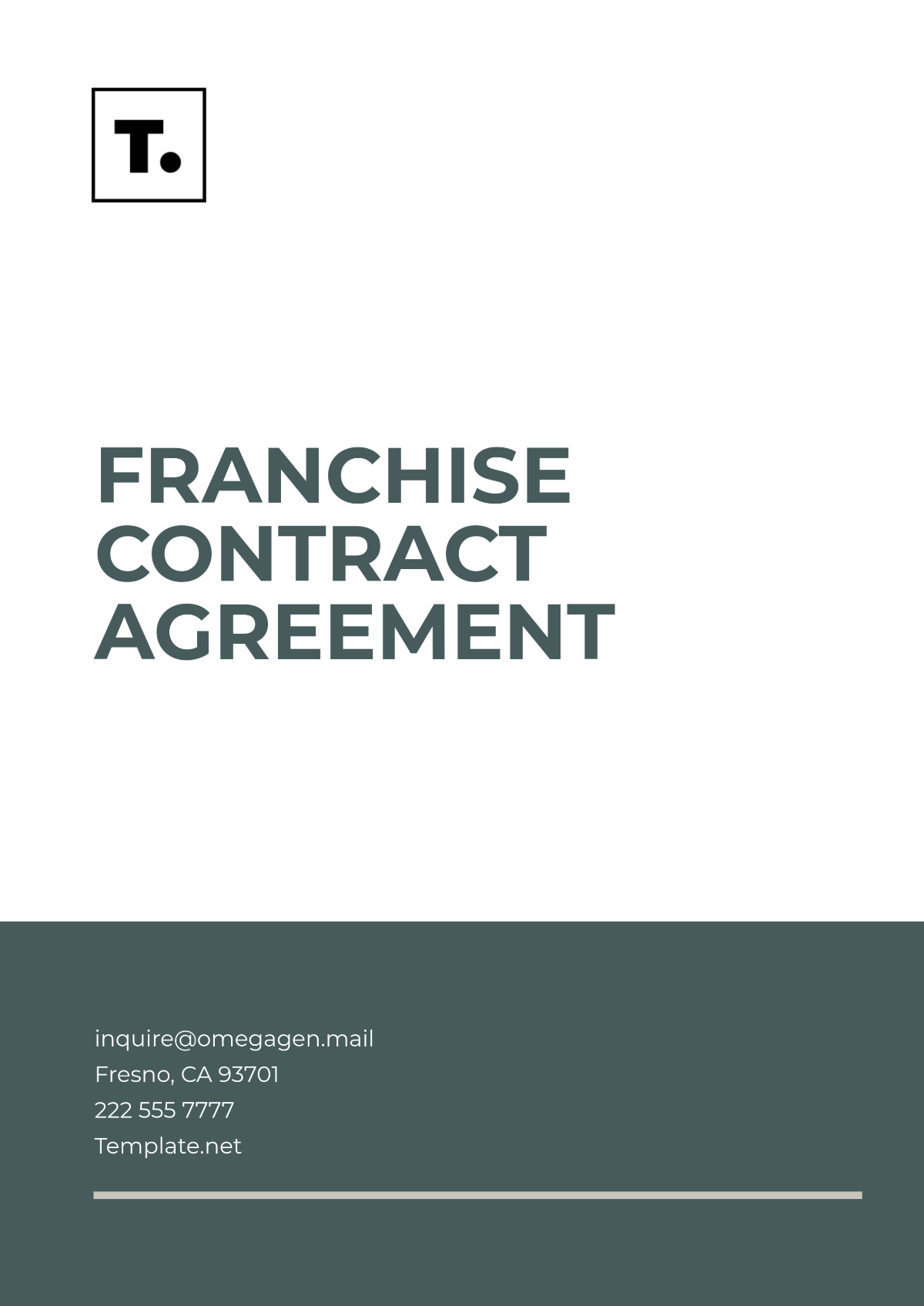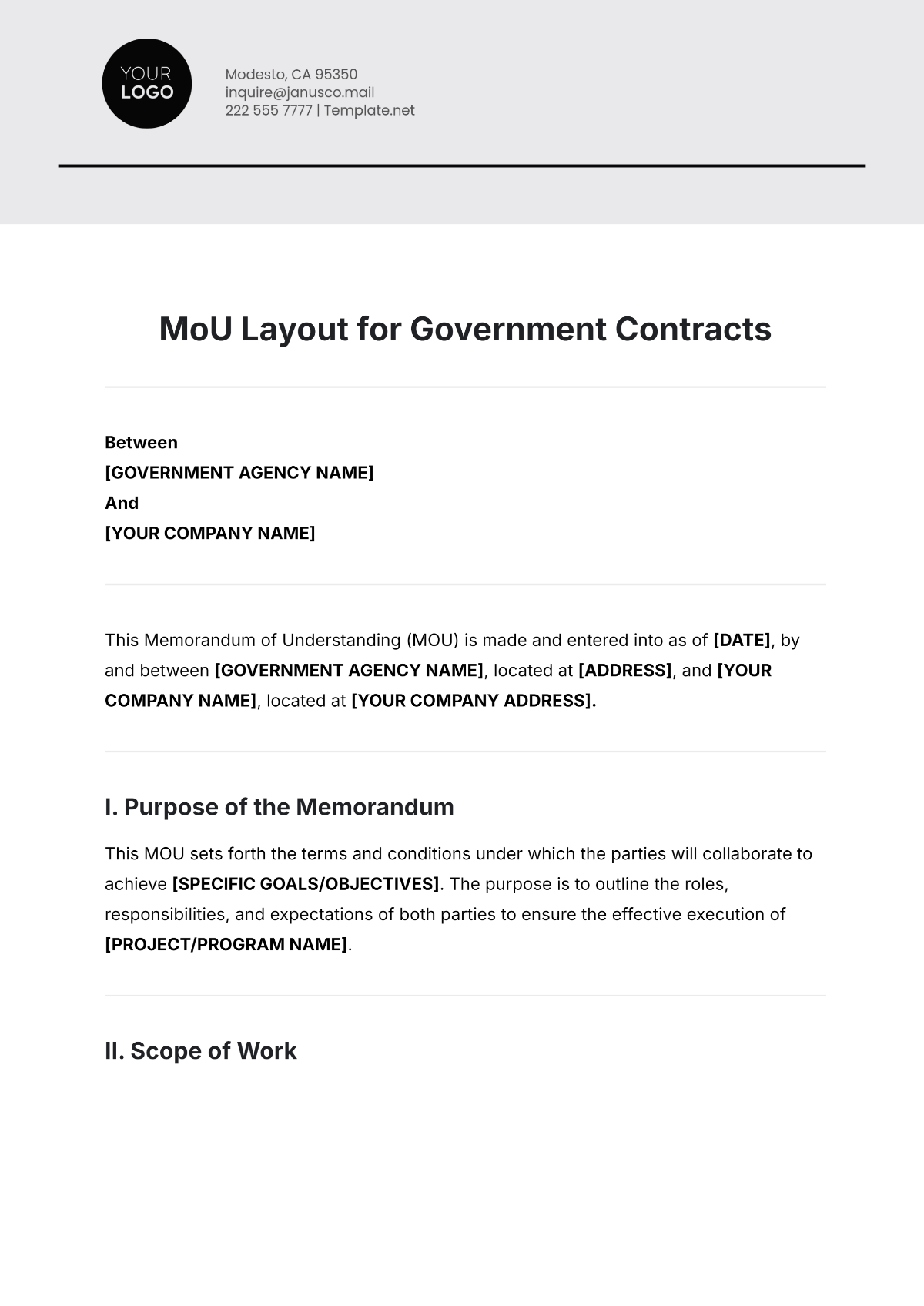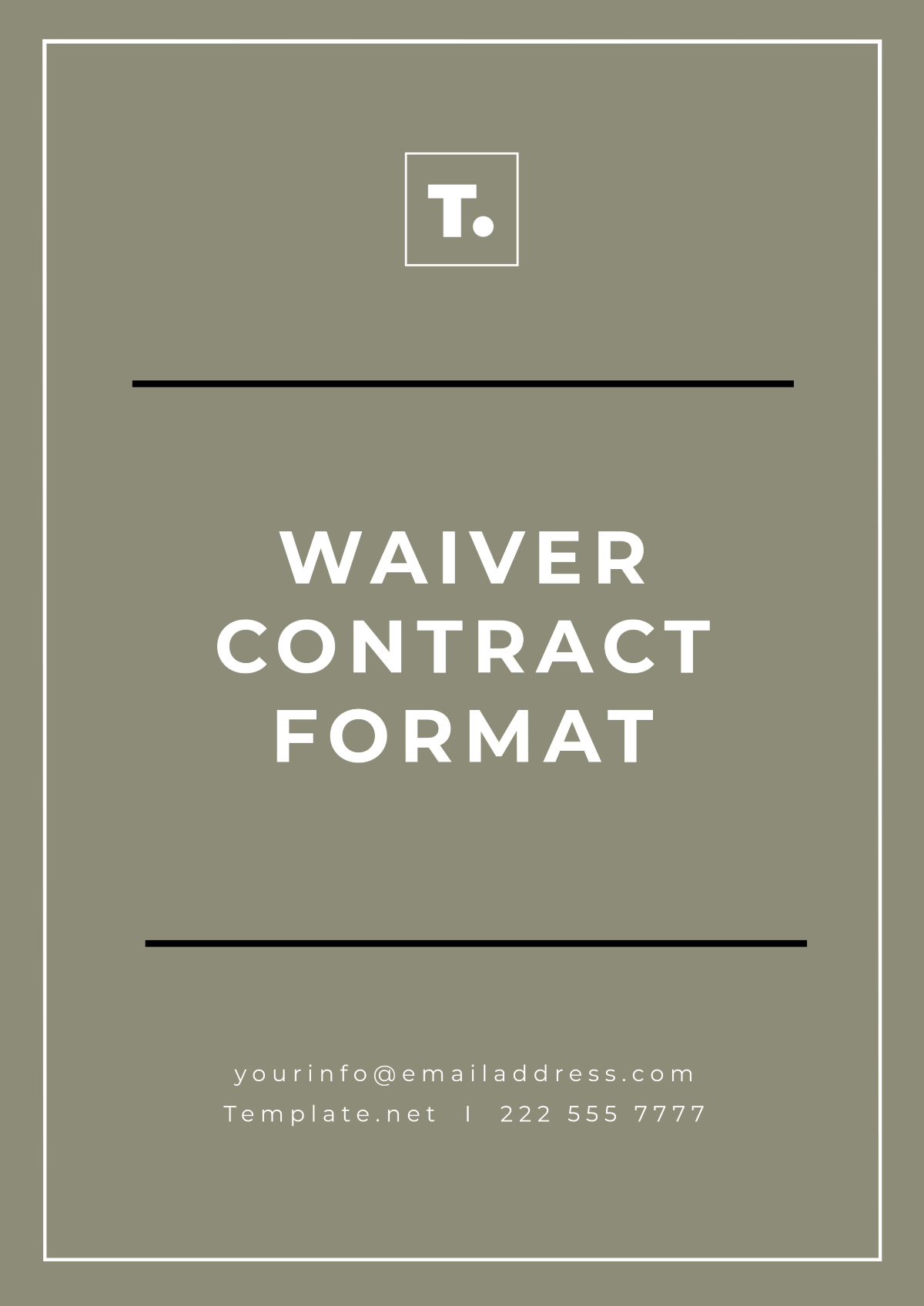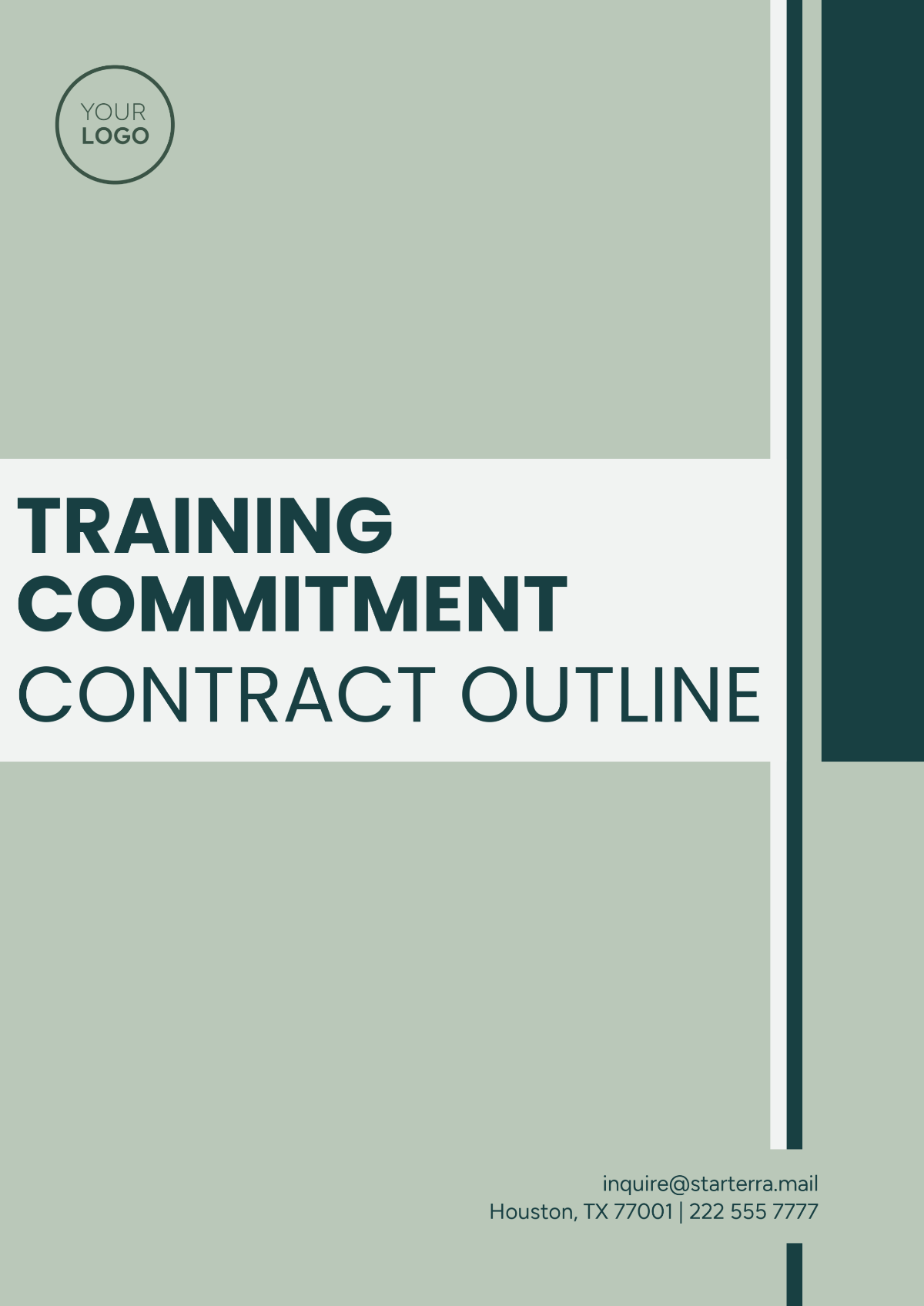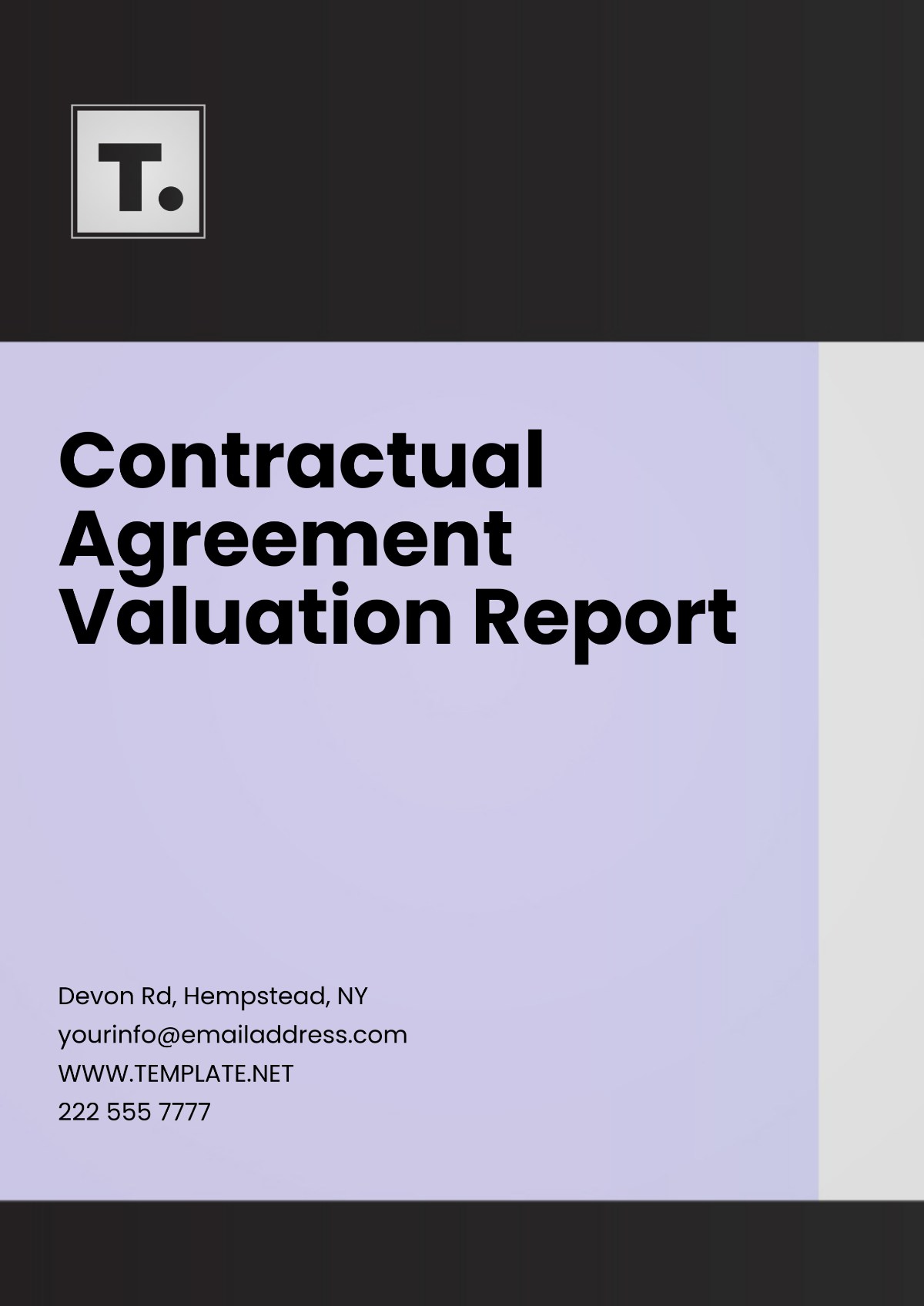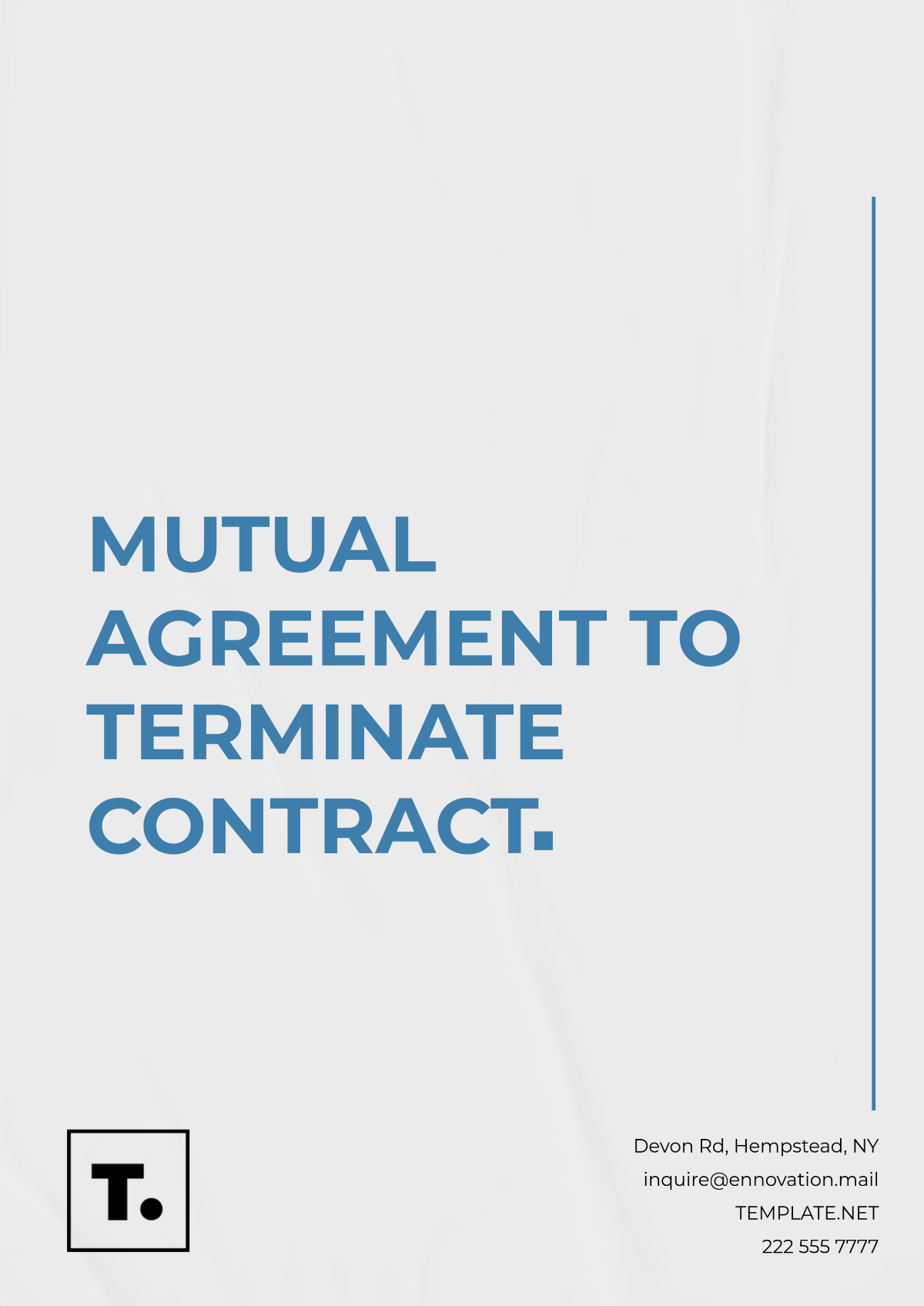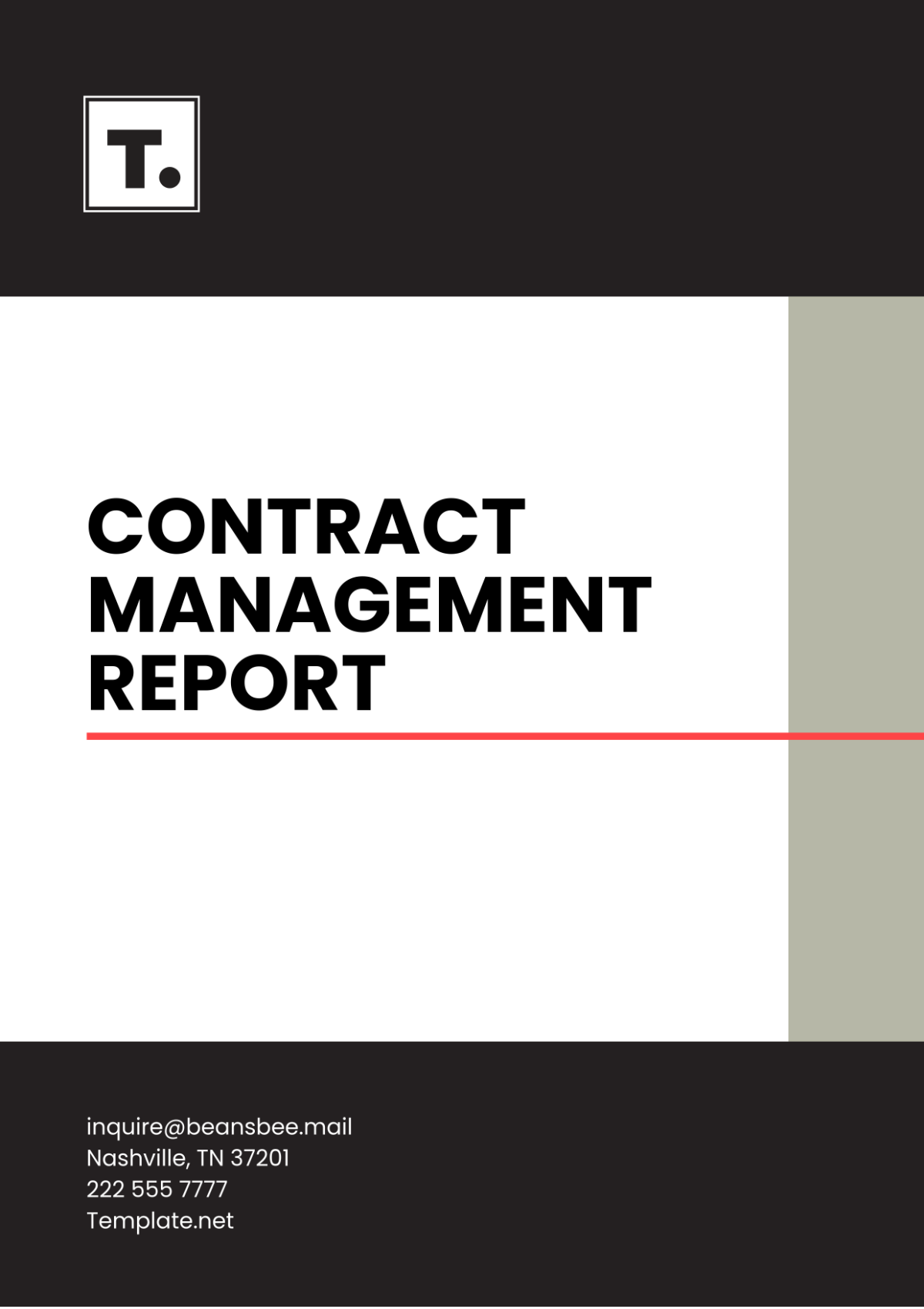Purchase Contract
This Purchase Contract ("Contract"), dated this [DATE] (the " Date"), is entered into between [YOUR NAME], located at [YOUR COMPANY NAME("Coach"), and [BUYER'S NAME], an individual of the profession, residing at [YOUR BUYER'S ADDRESS], ("Buyer").
1. Parties
Buyer's Full Name:
Seller's Full Name:
2. Property Details
Description of the property being sold.
Address: | [YOUR COMPANY ADDRESS] |
Legal Description: | [Provide the legal description of the property as recorded in official documents, such as deeds or surveys. This typically includes a detailed description of the property boundaries, dimensions, and any easements or encumbrances.] |
3. Purchase Price
3.1 Total Purchase Price
This is the overall amount agreed upon by both parties for the purchase of the item or service. For example, if you're purchasing a car, this would be the total amount you agree to pay for the vehicle.
3.2 Breakdown of Payment
If the purchase price is to be paid in installments or if there are different components to the payment (such as a down payment followed by monthly installments), you'll need to provide a breakdown. This breakdown should include:
Down Payment: The initial amount paid at the time of purchase.
Installments: Any subsequent payments and their amounts, including the frequency of payments (e.g., monthly, quarterly).
Total Amount Financed: If there's financing involved, specify the total amount to be financed, along with any applicable interest rates or finance charges.
3.3 Terms and Conditions
Include any terms and conditions related to the payment, such as late payment penalties, interest rates on installments, or any discounts for early payment.
3.4 Payment Schedule
Provide a clear payment schedule detailing when each payment is due and the method of payment accepted (e.g., bank transfer, credit card, check).
3.5 Confirmation of Agreement
Both parties should sign and date the agreement to confirm their understanding and acceptance of the purchase price and payment terms.
4. Payment Terms
4.1 Mode of Payment:
We accept payments through the following modes:
Cash
Check
Bank Transfer
Credit/Debit Card (if applicable)
Please ensure that all payments are made in the currency specified in the invoice.
4.2 Schedule of Payments:
Initial Deposit: $1000 is due upon signing the contract.
Subsequent payments will be made according to the following schedule:
50% of the remaining balance ($2000) is due on [DATE].
30% of the remaining balance ($1200) is due on [DATE].
20% of the remaining balance ($800) is due on [DATE].
4.3 Deposit Amount:
A deposit of [Specify Amount] is required to confirm the booking/order. This amount will be deducted from the total cost and is non-refundable after [Specify Date, if applicable].
4.4 Due Dates for Payments:
The initial deposit is due on [Date].
Subsequent payments are due on the dates specified in the schedule above. Please refer to the provided payment schedule for detailed information on each installment's due date, amount, and any specific instructions or conditions associated with the payment. If you have any questions or require further clarification, feel free to reach out to our customer service team for assistance.
4.5 Late Payments:
Any payment not received by the due date will be subject to a late fee of [Specify Fee or Percentage].
Failure to make payments within [Specify Grace Period] days of the due date may result in cancellation of the contract/order.
4.6 Additional Information:
Please include the invoice number or reference number with all payments.
For bank transfers, please use the following details:
Bank Name:
Account Name:
Account Number:
Swift Code (if applicable):
5. Closing Date
The closing date refers to the specific day when the legal transfer of ownership of a property or asset from the seller to the buyer occurs. It is the date agreed upon by both parties in the sales contract or agreement.
5.1 Location of Closing:
The location of the closing typically depends on the jurisdiction where the property is located and can vary based on local customs and regulations. Common locations for closings include:
Title Company Office: Many real estate transactions are closed at the office of a title company or escrow agent. These offices are equipped to handle the necessary paperwork and facilitate the transfer of funds.
Attorney's Office: In some regions, closings are conducted at the office of the buyer's or seller's attorney. Attorneys can ensure that all legal requirements are met and provide guidance throughout the process.
Real Estate Brokerage Office: Occasionally, closings may take place at the office of the real estate brokerage handling the transaction. This can be convenient if both the buyer and seller have been working with the same brokerage.
Courthouse: In certain jurisdictions, closings may occur at the courthouse or another government office responsible for recording property transactions. This is more common in areas where attorneys or title companies are not typically involved in the closing process.
Remote Closing: With advancements in technology, remote or electronic closings have become increasingly common. In a remote closing, the parties may sign documents electronically and transfer funds electronically, without the need to physically gather in one location.
6. Title and Ownership
This clause shall represent and warrant that the Seller possesses the full legal right, power, and authority to sell the property described herein. The Seller further warrants that there are no encumbrances, liens, or restrictions on the property's title that would prevent its lawful transfer.
6.1 Covenant of Good Title:
The Seller hereby covenants that the title to the property is good and marketable and will warrant and defend the same against the lawful claims and demands of all persons whomsoever.
6.2 Indemnification Clause Regarding Title Defects:
The Seller agrees to indemnify, defend, and hold harmless the Buyer from and against any losses, damages, liabilities, costs, and expenses, including reasonable attorney's fees, arising out of or resulting from any defect in the title to the property, provided that such defect existed as of the date of closing and was not disclosed by the Seller.
Specific Information Needed:
Full legal description of the property being sold.
Details regarding any existing liens, encumbrances, or restrictions on the property's title.
Any warranties or representations made by the Seller regarding the title's quality.
Clear identification of the indemnification obligations, including the scope of indemnity and any limitations or conditions.
Procedure for resolving title disputes or defects, including notice requirements and remedies available to the Buyer.
Applicable jurisdiction and governing law for interpreting and enforcing the provisions of the agreement.
Any exceptions or limitations to the Seller's obligations regarding title defects, such as time limits for asserting claims or exclusions for certain types of defects.
7. Inspections and Disclosures
In real estate transactions, inspections and disclosures play crucial roles in ensuring transparency and protecting the interests of both buyers and sellers. Here's a breakdown of the specific information needed regarding these aspects:
7.1 Seller's Disclosure:
Property condition disclosure including defects, repairs, and hazards.
Information on major systems, appliances, pest issues, and legal disputes.
Disclosures on assessments, liens, or obligations.
7.2 Buyer's Inspection Rights:
Clear timeframe for inspections.
Buyer's right to bring in inspectors.
Seller's obligation to allow access and provide documentation.
Limitations on inspection scope.
7.3 Inspection Contingency:
Defined inspection period.
Process for addressing issues found.
Buyer's right to request repairs or cancel the contract.
The resolution process for disputes.
Consequences of waiving inspection contingency.
8. Contingencies
Any conditions that must be met before the sale is finalized.
8.1 Financing Contingency:
Buyer must secure financing within a set time or can withdraw.
8.2 Appraisal Contingency:
The property must appraise for at least the purchase price or the buyer can renegotiate or withdraw.
8.3 Home Inspection Contingency:
The buyer can have the property inspected and withdraw if significant arise.
8.4 Sale of Existing Home Contingency:
Buyer's purchase depends on selling their current home within a specified time.
8.5 Title Contingency:
The sale depends on the property having a clear title; the buyer may withdraw if issues arise.
8.6 Home Sale Contingency:
The seller's sale depends on finding suitable housing within a specified time.
8.7 HOA Contingency:
Buyer reviews and approves HOA rules, finances, and assessments before finalizing the purchase.
9. Representations and Warranties
These representations and warranties are standard in real estate transactions but may vary based on specific circumstances and negotiations between the parties involved. It's crucial for both parties to thoroughly review and understand these representations to mitigate potential disputes in the future. Additionally, consulting with legal professionals experienced in real estate transactions can ensure that all necessary details are addressed.
Seller's representations and warranties regarding the property may include:
Title and Ownership: The seller represents that they have legal ownership of the property and have the right to sell it.
Physical Condition: The seller warrants that the property is in good condition and repair, free from material defects not disclosed.
Compliance with Laws and Regulations: The seller represents that the property complies with all applicable laws, regulations, and zoning ordinances.
No Liens or Encumbrances: The seller warrants that there are no undisclosed liens, encumbrances, or claims against the property.
No Environmental Issues: The seller represents that there are no environmental hazards, violations, or contamination on the property.
Accuracy of Disclosures: Any disclosures made by the seller regarding the property are accurate and complete.
10. Closing Costs
In real estate transactions, closing costs refer to the various fees and expenses incurred by both the buyer and the seller during the final stages of a property sale. These costs can vary depending on factors such as the location of the property, local regulations, and agreements made between the parties involved. Here's a breakdown of common closing costs and how they are typically allocated between buyers and sellers:
10.1 Buyer's Closing Costs:
Loan origination fees
Appraisal fee
Credit report fee
Home inspection fees
Title insurance (usually)
Escrow fees (shared)
10.2 Seller's Closing Costs:
Real estate agent commissions
Property taxes (up to closing)
Title insurance (sometimes)
Transfer taxes (if applicable)
Attorney fees (if hired)
11. Default and Remedies
In case of default:
Notify the defaulting party.
Offer a chance to remedy the breach.
Seek damages or specific performance.
Terminate the contract if necessary.
Pursue legal action if needed.
This may include interest on late payments and reimbursement of costs.
12. Governing Law and Jurisdiction
To specify the governing law and jurisdiction for a contract, you typically include a clause similar to the following:
12.1 Governing Law:
"This contract shall be governed by and construed by the laws of [specific jurisdiction or state], excluding its conflicts of law principles."
12. 2Jurisdiction:
"Any dispute arising out of or in connection with this contract, including any question regarding its existence, validity, or termination, shall be subject to the exclusive jurisdiction of the courts of [specific jurisdiction or state]."
Please replace "[specific jurisdiction or state]" with the appropriate jurisdiction or state relevant to your contract. It's essential to consult with a legal professional to ensure that the chosen jurisdiction and governing law align with the needs and circumstances of the contract and the parties involved.
13. Entire Agreement
This contract, including all its terms and conditions, constitutes the entire agreement between [Party A] and [Party B] concerning the subject matter herein and supersedes all prior and contemporaneous agreements and understandings, whether oral or written, relating to such subject matter.
Amendment Clause:
No amendment, modification, or waiver of any provision of this agreement shall be effective unless in writing and signed by both [Party A] and [Party B]. Any such amendment, modification, or waiver shall be specifically identified as such and shall reference this agreement.

[BUYER'S NAME]
[BUYER'S COMPANY NAME]
[DATE]
[YOUR NAME]
[YOUR COMPANY NAME]
[DATE]

